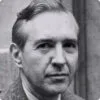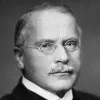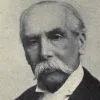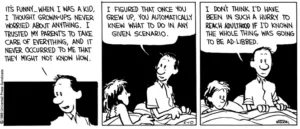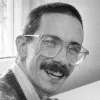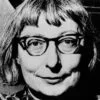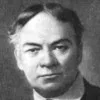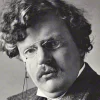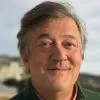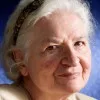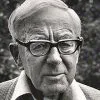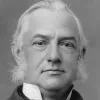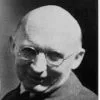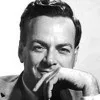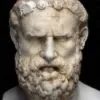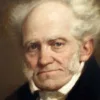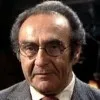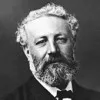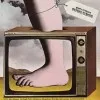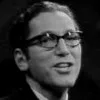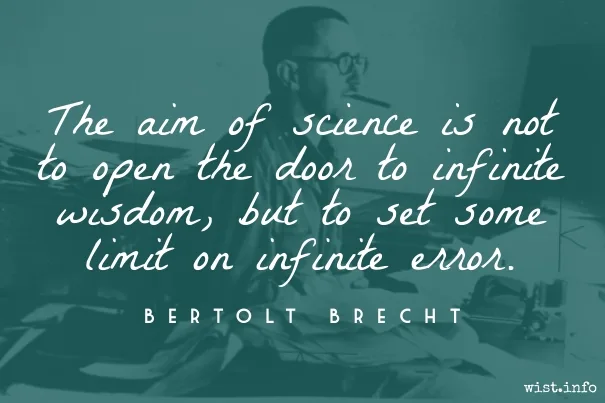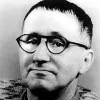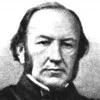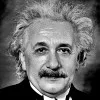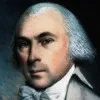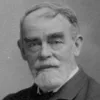Enlighten the people generally, and tyranny and oppressions of body & mind will vanish like evil spirits at the dawn of day. altho’ I do not, with some enthusiasts, believe that the human condition will ever advance to such a state of perfection as that there shall no longer be pain or vice in the world, yet I believe it susceptible of much improvement, and, most of all, in matters of government and religion; and that the diffusion of knolege among the people is to be the instrument by which it is to be effected.
Thomas Jefferson (1743-1826) American political philosopher, polymath, statesman, US President (1801-09)
Letter (1816-04-24) to Pierre Samuel du Pont de Nemours
(Source)
The first sentence is inscribed in Cox Corridor II, a first floor corridor on the House side of the US Capitol, Washington, DC.
Quotations about:
knowledge
Note not all quotations have been tagged, so Search may find additional quotes on this topic.
“Knowledge is what man is all about. People like you have tried to hold back progress since the beginning of time. But they failed, and you failed. Man needs to know.”
“Maybe,” Sanders said, “But is that the only thing man needs? I don’t think so. I think he also needs mystery, and poetry, and romance. I think he needs a few unanswered questions, to make him brood and wonder.”George R. R. Martin (b. 1948) American author and screenwriter [George Raymond Richard Martin]
“With Morning Comes Mistfall,” Analog (1973-05)
(Source)
Collected in Portraits of His Children (1987)
We humans, facing limits of knowledge, and things we do not observe, the unseen and the unknown, resolve the tension by squeezing life and the world into crisp commoditized ideas, reductive categories, specific vocabularies, and prepackaged narratives, which, on the occasion, has explosive consequences.
Nassim Nicholas Taleb (b. 1960) Lebanese-American essayist, statistician, risk analyst, aphorist
The Bed of Procrustes: Philosophical and Practical Aphorisms, Introduction (2010)
(Source)
Knowledge is subtractive, not additive — what we subtract (reduction by what does not work, what not to do), not what we add (what to do).
Nassim Nicholas Taleb (b. 1960) Lebanese-American essayist, statistician, risk analyst, aphorist
The Bed of Procrustes: Philosophical and Practical Aphorisms, “Epistomology and Subtractive Knowledge” (2010)
(Source)
A person is not a democrat thanks to his ignorance of literature and the arts, nor an elitist because he or she has cultivated them. The possession of knowledge makes for unjust power over others only if used for that very purpose: a physician or lawyer or clergyman can exploit or humiliate others, or he can be a humanitarian and a benefactor. In any case, it is absurd to conjure up behind anybody who exploits his educated status the existence of an “elite” scheming to oppress the rest of us.
Jacques Barzun (1907-2012) French-American historian, educator, polymath
Essay (1989), “Exeunt the Humanities,” The Culture We Deserve
(Source)
An earlier version of this essay appeared as "This Business of the Humanities," Three Talks by Jacques Barzun, Northern Kentucky University (1980).
I will tell you my rule. Talk about those subjects you have had long in your mind, and listen to what others say about subjects you have studied but recently. Knowledge and timber shouldn’t be much used till they are seasoned.
Oliver Wendell Holmes, Sr. (1809-1894) American poet, essayist, scholar
Article (1858-04), “Autocrat of the Breakfast-Table,” Atlantic Monthly
(Source)
Collected in Autocrat of the Breakfast-Table, ch. 6 (1858).
To say this is also to say that the age of ready reference is one in which knowledge inevitably declines into information. The master of so much packaged stuff has less need to grasp context or meaning than his forbears: he can always look it up. His active memory is otherwise engaged anyway, full of the arbitrary names, initials, and code figures essential to carrying on daily life. He can be vague about the rest: he can always check it out.
Jacques Barzun (1907-2012) French-American historian, educator, polymath
Essay (1989), “Look It Up! Check It Out!” The Culture We Deserve
(Source)
An earlier version of this essay was published in The American Scholar (1986, Autumn).
It is true, that every increase of knowledge may possibly render depravity more depraved, as well as it may increase the strength of virtue. It is in itself only power; and its value depends on its application.
Sydney Smith (1771-1845) English clergyman, essayist, wit
Essay (1810-01), “Female Education,” Edinburgh Review No. 30, Art. 3
(Source)
Review of Thomas Broadhurst, Advice to Young Ladies on the Improvement of the Mind (1808).
Knowledge is, indeed, that which, next to virtue, truly and essentially raises one man above another. It finishes one half of the human Soul. It makes Being pleasant to us, fills the mind with entertaining views, and administers to it a perpetual series of gratifications. It gives ease to solitude and gracefulness to retirement. It fills a publick station with suitable abilities, and adds a lustre to those who are in possession of them.
Joseph Addison (1672-1719) English essayist, poet, statesman
Essay (1713-07-18), The Guardian, No. 111
(Source)
IGNORAMUS, n. A person unacquainted with certain kinds of knowledge familiar to yourself, and having certain other kinds that you know nothing about.
Ambrose Bierce (1842-1914?) American writer and journalist
“Ignoramus,” The Cynic’s Word Book (1906)
(Source)
Included in The Devil's Dictionary (1911). Originally published in the "Devil's Dictionary" column in the San Francisco Wasp (1885-08-29).
The need for a body of common knowledge and common reference does not disappear when a society is largely pluralistic, as ours has become. On the contrary, it grows more necessary, so that people of different origins and occupation may quickly find familiar ground and, as we say, speak a common language. It not only saves time and embarrassment, but it also ensures a kind of mutual confidence and good will. One is not addressing an alien, blank as a stone wall, but a responsive creature whose mind is filled with the same images, memories, and vocabulary as oneself.
Mistakes are, after all, the foundation of truth, and if a man does not know what a thing is, it is at least an increase in knowledge if he knows what it is not.
Don’t you believe ’em when they say that what you don’t know won’t hurt you. Biggest lie ever was. See it all and go your own way and nothing’ll hurt you. If what you see ain’t pretty, what’s the odds! See it anyway. Then next time you don’t have to look.
Edna Ferber (1886-1968) American author and playwright
Show Boat, ch. 13 (1926)
(Source)
Captain Andy Hawkes to his daughter, Magnolia.
Many shall run to and fro, and knowledge shall be increased.
The Bible (The Old Testament) (14th - 2nd C BC) Judeo-Christian sacred scripture [Tanakh, Hebrew Bible], incl. the Apocrypha (Deuterocanonicals)
Daniel 12: 4 [KJV (1611)]
(Source)
The Old Greek version of the Septuagint uses a word that translated out to "evil" or "wickedness" or "injustice". Later versions, particularly Theodotian's favored translation, used "knowledge" (Hebrew הַדָּֽעַת or Greek γνῶσις) [notes 1, 2, 3, 4].
Quoted by Francis Bacon as an epigraph on the frontispiece of his Instauratio Magna [The Great Instauration] (1620), in both English (as the King James Version) and Latin: "Multi pertransibunt & augebitur scientia."
Alternate translations:Many will wander this way and that, and wickedness will go on increasing.
[JB (1966)]Meanwhile, many people will waste their efforts trying to understand what is happening.
[GNT (1976)]Many will roam about, this way and that, and wickedness will continue to increase.
[NJB (1985)]Many will stray far, but knowledge will increase.
[CEB (2011)]Many shall be running back and forth, and evil shall increase.
[NRSV (2021 ed.)]Many will range far and wide and knowledge will increase.
[RJPS (2023 ed.)]
GALE: Childhood is Last Chance Gulch for happiness. After that, you know too much.
Tom Stoppard (b. 1937) Czech-English playwright and screenwriter
Where Are They Now? (1968)
(Source)
The Ten Commandments that, as a teacher, I should wish to promulgate, might be set forth as follows:
- Do not feel absolutely certain of anything.
- Do not think it worth while to proceed by concealing evidence, for the evidence is sure to come to light.
- Never try to discourage thinking for you are sure to succeed.
- When you meet with opposition, even if it should be from your husband or your children, endeavour to overcome it by argument and not by authority, for a victory dependent upon authority is unreal and illusory.
- Have no respect for the authority of others, for there are always contrary authorities to be found.
- Do not use power to suppress opinions you think pernicious, for if you do the opinions will suppress you.
- Do not fear to be eccentric in opinion, for every opinion now accepted was once eccentric.
- Find more pleasure in intelligent dissent that in passive agreement, for, if you value intelligence as you should, the former implies a deeper agreement than the latter.
- Be scrupulously truthful, even if the truth is inconvenient, for it is more inconvenient when you try to conceal it.
- Do not feel envious of the happiness of those who live in a fool’s paradise, for only a fool will think that it is happiness.
Bertrand Russell (1872-1970) English mathematician and philosopher
“The Best Answer to Fanaticism: Liberalism,” New York Times Magazine (1951-12-16)
(Source)
Sometimes referred to as "The Liberal Decalogue." Later printed in The Autobiography of Bertrand Russell, Vol. 3 (1969).
A little knowledge is said to be a dangerous thing, but it is not dangerous to the imagination. Knowledge is to the imagination what fuel is to flame. A little feeds it; a great deal extinguishes it.
If we turn away from knowledge and truth, we will not succeed. If we believe the worst and suspect the best, we alone will suffer. If we deny our progress, if we are against all of it, if we tear down our accomplishments, we will fill the world with sorrow, and we will blemish our own name with shame.
But if we are courageous and farsighted and farseeing, if we have no fear of the truth, if we seek only after light, then we and our children and our children’s children shall know the greatness of this wonderful, beautiful land we call America.Lyndon B. Johnson (1908-1973) American politician, educator, US President (1963-69)
Speech (1964-09-28), Convocation, Brown University
(Source)
On government support of higher education, research, and scholarship.
CALVIN’S DAD: It’s funny … when I was a kid, I thought grown-ups never worried about anything. I trusted my parents to take care of everything, and it never occurred to me that they might not know how. I figured that once you grew up, you automatically knew what to do in any given scenario. I don’t think I would have been in such a hurry to reach adulthood if I’d know the whole thing was going to be ad-libbed.
Bill Watterson (b. 1958) American cartoonist
Calvin and Hobbes (1989-05-10)
(Source)
After their house has been burgled.
Science doesn’t supply happiness; but neither does its lack. The same can be said of social utopias: they aren’t created by science, but neither does lack of science provide them. Science has cast up dangerous and cruel knowledge, which has been exploited for warfare and dictatorial power; but so have cultures so little gifted with scientists that they either make do with imported weapons or rely on clubs, axes, and daggers. Scientific information about our mistakes — for instance, that deforestation invites mud slides and deserts, that overfishing depletes fish stocks — doesn’t guarantee we will avoid such mistakes or correct them, but that is owing to failure to heed what science uncovers.
Jane Jacobs (1916-2006) American-Canadian journalist, author, urban theorist, activist
Dark Age Ahead, ch. 3 “Science Abandoned” (2004)
(Source)
And he respects Owl, because you can’t help respecting anyone who can spell TUESDAY, even if he doesn’t spell it right; but spelling isn’t everything. There are days when spelling Tuesday simply doesn’t count.
No desire is more natural than the desire for knowledge. We assay all the means that can lead us to it. When reason fails us we make use of experience. Experience is a weaker and less dignified means: but truth is so great a matter that we must not disdain any method that leads us to it.
[Il n’est desir plus naturel que le desir de cognoissance. Nous essayons tous les moyens qui nous y peuvent mener. Quand la raison nous faut, nous y employons l’experience. Qui est un moyen de beaucoup plus foible et plus vil. Mais la verité est chose si grande, que nous ne devons desdaigner aucune entremise qui nous y conduise.]
Michel de Montaigne (1533-1592) French essayist
Essays, Book 3, ch. 13 “On Experience [De l’Experience]” (1588) (3.13) (1595) [tr. Screech (1987)]
(Source)
Aristotle's Metaphysics opens with the phrase "All men by nature desire knowledge."
The 1595 edition included a quotation from Manilius inserted after the word "experience" (omitted here). It also added the second descriptor (after "weaker") of how experience compares to reason.
(Source (French)). Alternate translations:There is no desire more naturall, then that of knowledge. We attempt all meanes that may bring us unto it. When reason failes us, we employ experience. Which is a meane by much more, weake and vile. But trueth is of so great consequence, that wee ought not disdaine any induction, that may bring us unto it.
[tr. Florio (1603)]There is no Desire more natural than that of Knowledge: We try all Ways that can lead us to it; where Reason is wanting, we therein employ Experience which is a Means much more weak and cheap. But Truth is so great a thing, that we ought not to disdain any Mediation that will guide us to it.
[tr. Cotton (1686)]There is no desire more natural than that of knowledge. We try all ways that can lead us to it; where reason is wanting, we therein employ experience which is a means much more weak and cheap; but truth is so great a thing, that we ought not to disdain any mediation that will guide us to it.
[tr. Cotton/Hazlitt (1877)]There is no desire more natural than the desire for knowledge. We make trial of all means that can lead us to it. When reasoning fails us, we then make use of experience, which is a much feebler and lower means; but truth is so great a thing that we must not disdain any medium that leads us to it.
[tr. Ives (1925)]There is no desire more natural than the desire for knowledge. We try all the ways that can lead us to it. When reason fails us, we use experience, which is a weaker and less dignified means. But truth is so great a thing that we must not disdain any medium that will lead us to it.
[tr. Frame (1943)]
Knowledge is not happiness, and science
But an exchange of ignorance for that
Which is another kind of ignorance.George Gordon, Lord Byron (1788-1824) English poet
“Manfred,” Act 2, sc. 4 [First Destiny] (1817)
(Source)
I should like to say that you have, through your knowledge, powers which humans have never had before. You can use these powers well or you can use them ill. You will use them well if you realize that humankind is all one family and that we can all be happy or we can all be miserable.
Bertrand Russell (1872-1970) English mathematician and philosopher
Interview by Woodrow Wyatt, BBC TV (1959)
Collected in Bertrand Russell's BBC Interviews (1959) [UK] and Bertrand Russell Speaks His Mind (1960) [US].
None are so fond of secrets as those who do not mean to keep them; such persons covet secrets as a spendthrift covets money, for the purpose of circulation.
Charles Caleb "C. C." Colton (1780-1832) English cleric, writer, aphorist
Lacon: Or, Many Things in Few Words, Vol. 1, § 40 (1820)
(Source)
Sorrow is knowledge: they who know the most
Must mourn the deepest o’er the fatal truth,
The Tree of Knowledge is not that of Life.George Gordon, Lord Byron (1788-1824) English poet
“Manfred,” Act 1, sc. 1 [Manfred] (1817)
(Source)
Yes, poor doggie, you are very stupid, very stupid indeed, compared with us clever men, who understand all about politics and philosophy, and who know everything in short, except what we are, and where we came from, and whither we are going, and what everything outside this tiny world and most things in it are.
Jerome K. Jerome (1859-1927) English writer, humorist [Jerome Klapka Jerome]
Idle Thoughts of an Idle Fellow, “On Cats and Dogs” (1889)
(Source)
The question is then how can we decide what anybody in the ancient world said. We can’t. We wish we could. It would be nice if we could. You would like to think that because you can go to the store and buy an edition of Plato that you are actually reading Plato, but the problem is that we just do not have the kind of evidence that we need in order to establish what ancient authors actually wrote. In some cases, we have all these data, and sometimes we have just one manuscript. Sometimes we have a manuscript that was written two-thousand years later, and that’s it! So, as much as we would like to be able to say we know what ancient authors actually wrote, we often just do not know.
Bart D. Ehrman (b. 1955) American Biblical scholar, author
“The Textual Reliability of the New Testament: A Dialogue between Bart Ehrman and Daniel Wallace,” Greer-Heard Point-Counterpoint Forum in Faith and Culture (2008-04-04/05)
(Source)
Reprinted in Robert Stewart, ed., The Reliability of the New Testament (2011).
Learning without thought ends in a blur. Thought without learning will soon totter.
[學而不思則罔、思而不學則殆。]Confucius (c. 551- c. 479 BC) Chinese philosopher, sage, politician [孔夫子 (Kǒng Fūzǐ, K'ung Fu-tzu, K'ung Fu Tse), 孔子 (Kǒngzǐ, Chungni), 孔丘 (Kǒng Qiū, K'ung Ch'iu)]
The Analects [論語, 论语, Lúnyǔ], Book 2, verse 15 (2.15) (6th C. BC – AD 3rd C.) [tr. Ware (1950)]
(Source)
Many (but not all) translators suggest that learning/study here is not general academics, but examining and maintaining the ancient traditions.
(Source (Chinese)). Alternate translations:Learning without thought is labour lost; thought without learning is perilous.
[tr. Legge (1861)]Learning with [sic] thought is a snare; thought without learning is a danger.
[tr. Jennings (1895)]Study without thinking is labour lost. Thinking without study is perilous.
[tr. Ku Hung-Ming (1898)]Learning without thought is useless. Thought without learning is dangerous.
[tr. Soothill (1910)]Education without meditation is useless. Meditation without education is risky.
[tr. Soothill (1910), alternate]Research without thought is a mere net and entanglement: thought without gathering data, a peril.
[tr. Pound (1933)]He who learns but does not think, is lost. He who thinks but does not learn is in great danger.
[tr. Waley (1938)]If one learns from others but does not think, one will be bewildered. If, on the other hand, one thinks but does not learn from others, one will be in peril.
[tr. Lau (1979)]If one studies but does not think, one is caught in a trap. If one thinks but does not study, one is in peril.
[tr. Dawson (1993)]To study without thinking is futile. To think without studying is dangerous.
[tr. Leys (1997)]Learning without thinking is fruitless; thinking without learning is perplexing.
[tr. Huang (1997); additional translations.]Studying but not thinking, it is confused; Thinking but not studying, it is dangerous.
[tr. Cai/Yu (1998)]Learning without due reflection leads to perplexity; reflection without learning leads to perilous circumstances.
[tr. Ames/Rosemont (1998)]If he studies and does not reflect, he will be rigid. If he reflects but does not study, he will be shaky.
[tr. Brooks/Brooks (1998)]To learn and never think -- that's delusion. But to think and never learn -- that is perilous indeed!
[tr. Hinton (1998)]If you learn without thinking about what you have learned, you will be lost. If you think without learning, however, you will fall into danger.
[tr. Slingerland (2003)]Learning without thought is pointless. Thought without learning is dangerous.
[tr. Watson (2007)]If you learn but do not think, you will be dazed. If you think but do not learn, you will be in danger.
[tr. Chin (2014)]Learning from books without critical thinking results in confusion. Thinking vacuously without learning from books is perilous.
[tr. Li (2020)]
Real education precisely consists in the fact that we see beyond the symbols and the mere machinery of the age in which we find ourselves: education precisely consists in the realization of a permanent simplicity that abides behind all civilizations, the life that is more than meat, the body that is more than raiment. The only object of education is to make us ignore mere schemes of education. Without education, we are in a horrible and deadly danger of taking educated people seriously.
Gilbert Keith Chesterton (1874-1936) English journalist and writer
“Our Note Book,” The Illustrated London News (1905-12-02)
(Source)
That there should one Man die ignorant who had capacity for Knowledge, this I call a tragedy.
Thomas Carlyle (1795-1881) Scottish essayist and historian
Sartor Resartus, Book 3, ch. 4 (1831)
(Source)
Blessed is he who has succeeded in learning the laws of nature’s working, has cast beneath his feet all fear and fate’s implacable decree, and the howl of insatiable Death.
[Felix, qui potuit rerum cognoscere causas,
atque metus omnis et inexorabile fatum
subiecit pedibus strepitumque Acherontis avari.]Virgil (70-19 BC) Roman poet [b. Publius Vergilius Maro; also Vergil]
Georgics [Georgica], Book 2, l. 490ff (2.490-492) (29 BC) [tr. Fairclough (Loeb) (1916)]
(Source)
(Source (Latin)). Alternate translations:Happie is he that hidden causes knowes,
And bold all shapes of danger dares oppose:
Trampling beneath his feet the cruell Fates,
Whom Death, nor swallowing Acheron amates.
[tr. Ogilby (1649)]Happy the Man, who, studying Nature's Laws,
Thro' known Effects can trace the secret Cause.
His Mind possessing, in a quiet state,
Fearless of Fortune, and resign'd to Fate.
[tr. Dryden (1709), l. 698-701]Happy the Man, whose penetrating mind
Of things the latent causes first could find,
He, who all terrors, ruthless Fate could quell,
And the dire din of all-devouring Hell!
[tr. Nevile (1767), l. 549-552]How blest the sage! whose soul can pierce each cause
Of changeful Nature, and her wondrous laws:
Who tramples fear beneath his foot, and braves
Fate, and stern death, and hell's resounding waves.
[tr. Sotheby (1800)]Happy is he who has been able to trace out the causes of things, and who has cast beneath his feet all fears, and inexorable Destiny, and the noise of devouring Acheron!
[tr. Davidson (1854)]Thrice blest the man whom mighty genius brings
To know the cause and origin of things:
Beneath his feet lie destiny and dread;
He walks the roaring waters of the dead.
[tr. Blackmore (1871)]Happy the man who has won the knowledge of the moving springs of nature, and so trmapled under food all fears, and the remorseless doom of death, and the road of Acheron, yawning for prey!
[tr. Wilkins (1873)]Happy, who had the skill to understand
Nature's hid causes, and beneath his feet
All terrors cast, and death's relentless doom,
And the loud roar of greedy Acheron.
[tr. Rhoades (1881)]Happy the man who knows the secret cause,
How nature works, and reads creation’s laws,
Whose soul to fortune can superior rise,
And death, dark minister of fate, despise.
[tr. King (1882), ll. 498-501]Happy is he who has been able to trace out the causes of things, and who has trodden under foot all idle fears, and inexorable Destiny, and the roar of devouring Acheron!
[tr. Bryce (1897)]Happy he who hath availed to know the causes of things, and hath laid all fears and immitigable Fate and the roar of hungry Acheron under his feet.
[tr. Mackail (1899)]Oh happy, whose heart hath attained Creation's secret to know,
Who hath trampled all haunting fears underfoot, nor dreadeth the blow
Of Fate the relentless, the roar of insatiate Acheron's flow!
[tr. Way (1912)]Blest was that man whose vision could explore
The world's prime causes, conquering for man
His horde of fears, his certain doom of death
Inexorable, and the menace loud
Of hungry Acheron!
[tr. Williams (1915)]Lucky is he who can learn the roots of the universe,
Has mastered all his fears and fate's intransigence
And the hungry clamour of hell.
[tr. Day-Lewis (1940)]Blessed is he who masters nature’s laws,
Tramples on fear and unrelenting fate,
On greedy, roaring Acheron.
[tr. Bovie (1956)]Happy the man who has been able to learn the causes of things and has trampled beneath his feet all fears, inexorable fate, and the howl of greedy Acheron.
[tr. Miles (1980)]Blessed is he whose mind had power to probe
The causes of things and trample underfoot
All terrors and inexorable fate
And the clamour of devouring Acheron.
[tr. Wilkinson (1982)]He who’s been able to learn the causes of things is happy,
and has set all fear, and unrelenting fate, and the noise
of greedy Acheron, under his feet.
[tr. Kline (2001)]Blessed, he who understands the workings of nature
and tramples all fear and relentless fate and the bone-
shaking clatter of greedy Death beneath his feet.
[tr. Lembke (2004)]O happy he who can fathom the causes of thing,
who's thrown all fear and dogged Fate
beneath his feet, and the roaring of ravenous Acheron.
[tr. Johnson (2009)]That man is blessed who has learned the causes of things,
And therefore under his feet subjugates fear
And the decrees of unrelenting fate
And the noise of Acheron's insatiable waters.
[tr. Ferry (2015)]
On the one hand, philosophy is to keep us thinking about things that we may come to know, and on the other hand to keep us modestly aware of how much what seems like knowledge isn’t knowledge.
Bertrand Russell (1872-1970) English mathematician and philosopher
Interview by Woodrow Wyatt, BBC TV (1959)
(Source)
Collected in Bertrand Russell's BBC Interviews (1959) [UK] and Bertrand Russell Speaks His Mind (1960) [US]. Reprinted (abridged) in The Humanist (1982-11/12), and in Russell Society News, #37 (1983-02).
Consider what you came from: you are Greeks!
You were not born to live like mindless brutes
but to follow paths of excellence and knowledge.[Considerate la vostra semenza:
fatti non foste a viver come bruti,
ma per seguir virtute e canoscenza.]Dante Alighieri (1265-1321) Italian poet
The Divine Comedy [Divina Commedia], Book 1 “Inferno,” Canto 26, l. 118ff (26.118-120) [Ulysses] (1309) [tr. Musa (1971)]
(Source)
Speaking to his sailors on their final voyage, urging them to explore the unknown.
(Source (Italian)). Alternate translations:On your original reflect, nor think
That you were, made, like Brutes, to only live,
But knowledge and to virtuous acts pursue.
[tr. Rogers (1782)]Recall your glorious toils, your lofty birth.
Nor like the grov'ling herds, ally'd to earth.
No base despondence quit your lofty claim.
[tr. Boyd (1802), st. 19]Call to mind from whence we sprang:
Ye were not form’d to live the life of brutes
But virtue to pursue and knowledge high.
[tr. Cary (1814)]Bethink you of your birth-rank and its dues:
Ye were not thus for brutish life endued.
But Virtue's path and Learning's born to chuse.
[tr. Dayman (1843)]Consider your origin: ye were not formed to live like brutes, but to follow virtue and knowledge.
[tr. Carlyle (1849)]Consider, then, the birth from whence you sprung:
You were not made, like brutes, to live and die:
The path of virtue and of knowledge try.
[tr. Bannerman (1850)]Consider well the seed from whence you sprung;
You were not made to live as live the beasts,
But to seek virtue and true knowledge grasp.
[tr. Johnston (1867)]Consider ye the seed from which ye sprang;
Ye were not made to live like unto brutes,
But for pursuit of virtue and of knowledge.
[tr. Longfellow (1867)]Consider your begetting; ye were not made to live as brutes, but to follow virtue and knowledge.
[tr. Butler (1885)]Over your noble birthright ye should muse;
To live like senseless brutes ye were not made,
But knowledge to pursue and virtue use.
[tr. Minchin (1885)]Consider ye your origin; ye were not made to live as brutes, but for pursuit of virtue and of knowledge.
[tr. Norton (1892)]Bethink you of your birth: ye were not made to live the life of brutes, but to obey the call of valour and of knowledge.
[tr. Sullivan (1893)]Consider ye the seed that ye are sprung from:
Ye were not made to live as the brute creatures,
But that ye virtue might pursue and knowledge.
[tr. Griffith (1908)]Take thought of the seed from which you spring. You were not born to live as brutes, but to follow virtue and knowledge.
[tr. Sinclair (1939)]Think on the seed ye spring from! Ye were made
Not to live life of brute beasts of the field
But follow virtue and knowledge unafraid.
[tr. Binyon (1943)]Think of your breed; for brutish ignorance
Your mettle was not made; you were made men.
To follow after knowledge and excellence.
[tr. Sayers (1949)]Greeks! You were not born to live like brutes,
but to press on toward manhood and recognition!
[tr. Ciardi (1954), l. 110]Consider your origin: you were not made to live as brutes, but to pursue virtue and knowledge.
[tr. Singleton (1970)]Consider well the seed that gave you birth:
you were not made to live your lives as brutes,
but to be followers of worth and knowledge.
[tr. Mandelbaum (1980)]Consider then the race from which you have sprung:
You were not made to live like animals,
But to pursue virtue and know the world.
[tr. Sisson (1981)]Consider well your seed:
You were not born to live as a mere brute does,
But for the pursuit of knowledge and the good.
[tr. Pinsky (1994)]Consider your sowing: you were not made to live like brutes, but to follow virtue and knowledge.
[tr. Durling (1996)]Consider your origin: you were not made to live like brutes, but to follow virtue and knowledge.
[tr. Kline (2002)]Hold clear in thought your seed and origin.
You were not made to live as mindless brutes,
but go in search of virtue and true knowledge.
[tr. Kirkpatrick (2006)]Consider how your souls were sown:
you were not made to live like brutes or beasts,
but to pursue virtue and knowledge.
[tr. Hollander/Hollander (2007)]Think of your origins, the people you come from:
You were not made to live like wild-toothed beasts,
But for the pursuit of virtue and honest knowledge.
[tr. Raffel (2010)]Remember now your pedigree.
You were not born to live as brutes. Virtue
And knowledge are your guiding lights.
[tr. James (2013)]
You will hear things like, “Science doesn’t know everything.” Well, of course science doesn’t know everything. But because science doesn’t know everything, that doesn’t mean science knows nothing. Science knows enough for us to be watched by a few million people now on television, for these lights to be working, for quite extraordinary miracles to have taken place in terms of the harnessing of the physical world and our dim approaches towards understanding it.
Learn a little of anything, and you’re ready to proselytize.
Mignon McLaughlin (1913-1983) American journalist and author
The Neurotic’s Notebook, ch. 7 (1963)
(Source)
Many shall run to and fro, and knowledge shall be increased
[Multi pertransibunt & augebitur scientia]
Francis Bacon (1561-1626) English philosopher, scientist, author, statesman
Instauratio Magna, Epigraph (1620)
(Source)
In fact ignorance of law leads to more lawsuits than knowledge of it.
[Potius ignoratio iuris litigiosa est quam scientia.]
Marcus Tullius Cicero (106-43 BC) Roman orator, statesman, philosopher
De Legibus [On the Laws], Book 1, ch. 5 (1.6) / sec. 18 [Marcus] (c. 51 BC) [tr. Zetzel (1999)]
(Source)
(Source (Latin)). Alternate translations:It is not so much the science of law that produces litigation, as the ignorance of it.
[tr. Barham (1842), Barham/Yonge (1878)]The litigious spirit is more often found with ignorance than with knowledge of law.
[ed. Harbottle (1906)]For it is rather ignorance of the law than knowledge of it that leads to litigation.
[tr. Keyes (1928)]Ignorance rather than knowledge of the law leads to litigation.
[tr. Rudd (1998)]
Profound ignorance makes a man dogmatical; he who knows nothing thinks he can teach others what he just now has learned himself.
[C’est la profonde ignorance qui inspire le ton dogmatique. Celui qui ne sait rien croit enseigner aux autres ce qu’il vient d’apprendre lui-même.]
Jean de La Bruyère (1645-1696) French essayist, moralist
The Characters [Les Caractères], ch. 5 “Of Society and Conversation [De la Société et de la Conversation],” § 76 (5.76) (1688) [tr. Van Laun (1885)]
(Source)
(Source (French)). Alternate translations:Profound Ignorance makes a Man dogmatick. If he knows nothing, he thinks he can teach others what he is to learn himself.
[Bullord ed. (1696)]Profound Ignorance makes a Man dogmatick; he who knows nothing, thinks he can teach others what he just now has learn'd himself.
[Curll ed. (1713)]A dogmatic tone is generally inspired by abysmal ignorance. The man who knows nothing thinks he is informing others of something which he has that moment learnt.
[tr. Stewart (1970)]
It is supposed to be true that those who do not know history are doomed to repeat it. I don’t believe knowing can save us. What is constant in history is greed and foolishness and a love of blood, and this is a thing that even God — who knows all that can be known — seems powerless to change.
The mind is formed by the knowledge and the direction of ideas it receives and the guidance it is given. Great things alone can make a great mind, and petty things will make a petty mind unless a man rejects them as completely alien.
[Weil der menschliche Geist durch die ihm mitgetheilten Kenntnisse und Ideenrichtungen erzogen wild. Nor das Grosse kann ihn grostartig, das Kleine nur kleinlich machen, wenn er et nicht wie elwas ganz Fremdes ganz von sich stösst.]
Karl von Clausewitz (1780-1831) Prussian soldier, historian, military theorist
On War [Vom Kriege], Book 2, ch. 2 “On the Theory of War [Über die Theorie des Krieges],” § 40 (2.2.40) (1832) [tr. Howard & Paret (1976)]
(Source)
(Source (German)). Alternate translations:The human mind is trained by the knowledge imparted to it, and the direction given to its ideas. Only what is great can make it great; the little can only make it little, if the mind itself does not reject it as something repugnant.
[tr. Graham (1873)]The human mind is formed by the kinds of knowledge imparted to it and the direction given to its ideas. Only what is great can make it great; the little can only make it little, if the mind itself does not reject it as something repugnant to it.
[tr. Jolles (1943)]
“You’ve got to admit it’s a bit of a pantomime, though,” said Crawly. “I mean, pointing out the Tree and saying ‘Don’t Touch’ in big letters. Not very subtle, is it? I mean, why not put it on top of a high mountain or a long way off? Makes you wonder what He’s really planning.”
Terry Pratchett (1948-2015) English author
Good Omens, 1. “In the Beginning” (1990) [with Neil Gaiman]
(Source)
Referring to the Tree of the Knowledge of Good and Evil (Gen. 2:16-17).
But remember, that manners must adorn knowledge, and smooth its way through the world. Like a great rough diamond, it may do very well in a closet by way of curiosity, and also for its intrinsic value; but it will never be worn, nor shine, if it is not polished.
Lord Chesterfield (1694-1773) English statesman, wit [Philip Dormer Stanhope]
Letter to his son, #155 (1 Jul 1748)
(Source)
Well, that’s Philosophy I’ve read,
And Law and Medicine, and I fear
Theology, too, from A to Zed;
Hard studies all, that have cost me dear.
And so I sit, poor silly man
No wiser now than when I began.[Habe nun, ach! Philosophie,
Juristerei und Medizin,
Und leider auch Theologie
Durchaus studiert, mit heißem Bemühn.
Da steh ich nun, ich armer Tor!
Und bin so klug als wie zuvor.]Johann Wolfgang von Goethe (1749-1832) German poet, statesman, scientist
Faust: a Tragedy [eine Tragödie], Part 1, sc. 4 “Night,” ll. 354ff (1808-1829) [tr. Luke (1987)]
(Source)
Some translations (and this site) include the Declaration, Prelude on the Stage, and Prologue in Heaven as individual scenes; others do not, leading to their Part 1 scenes being numbered three lower.
(Source (German)). Alternate translations:I've studied now Philosophy
And Jurisprudence, Medicine,
And even, alas! Theology
All through and through with ardour keen!
Here now I stand, poor fool, and see
I'm just as wise as formerly.
[tr. Priest (1808)]Now I have toil'd thro' all; philosophy,
Law, physic, and theology: alas!
All, all I have explor'd; and here I am
A weak blind fool at last: in wisdom risen
No higher than before.
[tr. Coleridge (1821)]I have now, alas, by zealous exertion, thoroughly mastered philosophy, the jurist's craft, and medicine -- and to my sorrow, theology too. Here I stand, poor fool that I am, just as wise as before.
[tr. Hayward (1831)]I have, alas! Philosophy,
Medicine, Jurisprudence too,
And to my cost Theology,
With ardent labour, studied through.
And here I stand, with all my lore,
Poor fool, no wiser than before.
[tr. Swanwick (1850)]Have now, alas! quite studied through
Philosophy and Medicine,
And Law, and ah! Theology, too,
With hot desire the truth to win!
And here, at last, I stand, poor fool!
As wise as when I entered school
[tr. Brooks (1868)]I've studied now Philosophy
And Jurisprudence, Medicine, --
And even, alas! Theology, --
From end to end, with labor keen;
And here, poor fool! with all my lore
I stand, no wiser than before:
[tr. Taylor (1870)]There now, I’ve toiled my way quite through
Law, Medicine, and Philosophy,
And, to my sorrow, also thee,
Theology, with much ado;
And here I stand, poor human fool,
As wise as when I went to school.
[tr. Blackie (1880)]I have studied, alas! Philosophy,
And Jurisprudence, and Medicine, too,
And saddest of all, Theology,
With arden labor, through and through!
And here I stick, as wise, poor fool,
As when my steps first turned to school.
[tr. Latham (1908)]I have, alas, studied philosophy,
Jurisprudence and medicine, too,
And, worst of all, theology
With keen endeavor, through and through --
And here I am, for all my lore,
The wretched fool I was before.
[tr. Kaufmann (1961)]Alas, I have studied philosophy,
the law as well as medicine,
and to my sorrow, theology;
studied them well with ardent zeal,
yet here I am, a wretched fool
no wiser than I was before.
[tr. Salm (1962)]I have pursued, alas, philosophy,
Jurisprudence, and medicine, And, help me God, theology,
With fervent zeal through thick and thin.
And here, poor fool, I stand once more,
No wiser than I was before.
[tr. Arndt (1976)]I've studied, alas, philosophy,
Law and medicine, recto and verso,
And how I regret it, theology also,
Oh God, how hard I've slaved away,
With what result? Poor foolish old man,
I'm not whit wiser than when I began!
[tr. Greenberg (1992)]Medicine, and Law, and Philosophy --
You've worked your way through every school,
Even, God help you, Theology,
And sweated at it like a fool.
Why labour at it any more?
You're no wiser now than you were before.
[tr. Williams (1999)]Ah! Now I’ve done Philosophy,
I’ve finished Law and Medicine,
And sadly even Theology:
Taken fierce pains, from end to end.
Now here I am, a fool for sure!
No wiser than I was before.
[tr. Kline (2003)]
If I had omitted setting down something of that which has appeared to me as clear, so that the knowledge would perish when I perish, as is inevitable, I should have considered that conduct as extremely cowardly with regard to you and everyone who is perplexed. It would have been, as it were, robbing one who deserves the truth of the truth, or grudging an heir his inheritance. And both those traits are blameworthy.
Maimonides (1135-1204) Spanish Jewish philosopher, scholar, astronomer, physician [Moses ben Maimon, Rambam, רמב״ם]
Guide for the Perplexed, Part 3, Introduction (c. 1190) [tr. Pines (1963)]
(Source)
Alternate translation:But if, on the other hand, I were to abstain from writing on this subject, according to my knowledge of it, when I die, as I shall inevitably do, that knowledge would die with me, and I would thus inflict great injury on you and all those who are perplexed. I would then be guilty of withholding the truth from those to whom it ought to be communicated, and of jealously depriving the heir of his inheritance. I should in either case be guilty of gross misconduct.
[tr. Friedlander (1885)]
Once you have discovered what is happening, you can’t pretend not to know, you can’t abdicate responsibility. Knowledge always brings responsibility.
P. D. James (1920-2014) British mystery writer [Phyllis Dorothy James White]
Devices and Desires, Book 6, ch. 10 (1990)
(Source)
Some men believe their own Opinions no less firmly than others do their positive Knowledge.
Aristotle (384-322 BC) Greek philosopher
Nicomachean Ethics [Ἠθικὰ Νικομάχεια], Book 7, ch. 3 (7.3) (c. 325 BC) [tr. Chase (1847)]
(Source)
Alternate translations:Some men put no less faith in their own uncertified opinions than do others in the verified truths of science.
[tr. Williams (1869), sec. 127]For some people are as strongly convinced of their opinions as others of their knowledge.
[tr. Welldon (1892)]Some people have just as strong a belief in their mere opinions as others have in what they really know.
[tr. Peters (1893), 7.3.4]Some men are no less convinced of what they think than others of what they know.
[tr. Ross (1908)]Some men are just as firmly convinced of what they opine as others are of what they know.
[tr. Rackham (1934)]Some people have no less conviction about that they believe than others do about what they know scientifically.
[tr. Reeve (1948)]Some men are just as sure of the truth of their opinions as others are of what they know.
[tr. Thomson (1953)]Some men are no less convinced of their opinions about things than others of the things they know.
[tr. Apostle (1975)]There are some people who have no less confidence than others hav ein what they know.
[tr. Thomson/Tredennick (1976)]Some are no less convinced of what they opine about than are other people of what they know.
[tr. Bartlett/Collins (2011)]
The desire of power in excess caused the angels to fall; the desire of knowledge in excess caused man to fall; but in charity there is no excess, neither can angel or man come in danger by it.
Francis Bacon (1561-1626) English philosopher, scientist, author, statesman
“Of Goodness and Goodness of Nature,” Essays, No. 13 (1625)
(Source)
Often trimmed down to "In charity there is no excess."
Those long chains composed of very simple and easy reasonings, which geometers customarily use to arrive at their most difficult demonstrations, had given me occasion to suppose that all the things which come within the scope of human knowledge are interconnected in the same way. And I thought that, provided we refrain froma ccepting anything as true which is not, and always keep to the order required for deducing one thing from another, there can be nothing too remote to be reached in the end or too well hidden to be discovered.
[Ces longues chaînes de raisons, toutes simples et faciles, dont les géomètres ont coutume de se servir pour parvenir à leurs plus difficiles démonstrations, m’avoient donné occasion de m’imaginer que toutes les choses qui peuvent tomber sous la connoissance des hommes s’entresuivent en même façon, et que, pourvu seulement qu’on s’abstienne d’en recevoir aucune pour vraie qui ne le soit, et qu’on garde toujours l’ordre qu’il faut pour les déduire les unes des autres, il n’y en peut avoir de si éloignées auxquelles enfin on ne parvienne, ni de si cachées qu’on ne découvre.]
René Descartes (1596-1650) French philosopher, mathematician
Discourse on Method [Discours de la méthode], Part 2 (1637) [tr. Cottingham, Stoothoff (1985)]
(Source)
(Source (French)). Alternate translations:Those long chains of reasons, (though simple and easie) which the Geometricians commonly use to lead us to their most difficult demonstrations, gave me occasion to imagine, That all things which may fall under the knowledge of Men, follow one the other in the same manner, and so we doe only abstain from receiving any one for true, which is not so, and observe always the right order of deducing them one from the other, there can be none so remote, to which at last we shall not attain; nor so hid, which we shall not discover.
[Newcombe ed. (1649)]The long chains of simple and easy reasonings by means of which geometers are accustomed to reach the conclusions of their most difficult demonstrations, had led me to imagine that all things, to the knowledge of which man is competent, are mutually connected in the same way, and that there is nothing so far removed from us as to be beyond our reach, or so hidden that we cannot discover it, provided only we abstain from accepting the false for the true, and always preserve in our thoughts the order necessary for the deduction of one truth from another.
[tr. Veitch (1850)]Those long chains of reasoning, simple and easy as they are of which geometricians make use in order to arrive at the most difficult demonstrations, had caused me to imagine that all those things which fall under the cognizance of man might very likely be mutually related in the same fashion; and that, provided only that we abstain from receiving anything as true which is not so, and always retain the order which is necessary in order to deduce the one conclusion from the other, there can be nothing so remote that we cannot reach to it, nor to recondite that we cannot discover it.
[tr. Haldane & Ross (1911)]These long chains of perfectly simple and easy reasonings by means of which geometers are accustomed to carry out their most difficult demonstrations had led me to fancy that everything that can fall under human knowledge forms a similar sequence; and that so long as we avoid accepting as true what it not so, and always preserve the right order for deduction of one thing from another, there can be nothing too remote to be reached in the end, or too well hidden to be discovered.
[tr. Ascombe & Geach (1971)]
In the course of my travels I remarked that all those whose opinions are decidedly repugnant to ours are not in that account barbarians and savages, but on the contrary that many of these nations make an equally good, if not better, use of their reason than we do. I took into account also the very different character which a person brought up from infancy in France or Germany exhibits, from that which, with the same mind originally, this individual would have possessed had he lived always among the Chinese or with savages, and the circumstance that in dress itself the fashion which pleased us ten years ago, and which may again, perhaps, be received into favor before ten years have gone, appears to us at this moment extravagant and ridiculous. I was thus led to infer that the ground of our opinions is far more custom and example than any certain knowledge.
[Et depuis, en voyageant, ayant reconnu que tous ceux qui ont des sentiments fort contraires aux nôtres ne sont pas pour cela barbares ni sauvages, mais que plusieurs usent autant ou plus que nous de raison; et ayant considéré combien un même homme, avec son même esprit, étant nourri dès son enfance entre des Français ou des Allemands, devient différent de ce qu’il seroit s’il avoit toujours vécu entre des Chinois ou des cannibales, et comment, jusques aux modes de nos habits, la même chose qui nous a plu il y a dix ans, et qui nous plaira peut-être encore avant dix ans, nous semble maintenant extravagante et ridicule; en sorte que c’est bien plus la coutume et l’exemple qui nous persuade, qu’aucune connaissance certaine.]
René Descartes (1596-1650) French philosopher, mathematician
Discourse on Method [Discours de la méthode], Part 2 (1637) [tr. Veitch (1901)]
(Source)
(Source (French)). Alternate translations:And having since observ’d in my travails, That all those whose opinions are contrary to ours, are not therefore barbarous or savage, but that many use as much or more reason then we; and having consider’d how much one Man with his own understanding, bred up from his childhood among the French or the Dutch, becomes different from what he would be, had he alwayes liv’d amongst the Chineses, or the Cannibals: And how even in the fashion of our Clothes, the same thing which pleas’d ten years since, and which perhaps wil please ten years hence, seems now to us ridiculous and extravagant. So that it’s much more Custome and Example which perswades us, then any assured knowledg.
[tr. Newcombe ed. (1649)]I further recognized in the course of my travels that all those whose sentiments are very contrary to ours are yet not necessarily barbarians or savages, but may be possessed of reason in as great or even a greater degree than ourselves. I also considered how very different the self-same man, identical in mind and spirit, may have become, according as he is brought up from childhood amongst the French or Germans, or has passed his whole life amongst Chinese or cannibals. I likewise noticed how even in the fashions of one's clothing the same thing that pleased us ten years ago, and which will perhaps please us once again before ten years are passed, seems at the present time extravagant and ridiculous. I thus concluded that it is much more custom and example that persuade us than any certain knowledge.
[tr. Haldane & Ross (1911)]Since then I have recognized through my travels that those with views quite contrary to ours are not on that account barbarians or savages, but that many of them make use of reason as much or more than we do. I thought, too, how the same man, with the same mind, if brought up from infancy among the French or Germans, develops otherwise than he would if he had always lived among the Chinese or cannibals; and how, even in our fashions of dress, the very thing that pleased us ten years ago, and will perhaps please us again ten years hence, now strikes us as extravagant and ridiculous. Thus it is custom and example that persuade us, rather than any certain knowledge.
[tr. Cottingham, Stoothoff (1985)]
I do not approve the maxim which desires a man to know a little of everything. Superficial knowledge, knowledge without principles, is almost always useless and sometimes harmful knowledge.
Luc de Clapiers, Marquis de Vauvenargues (1715-1747) French moralist, essayist, soldier
Reflections and Maxims [Réflexions et maximes] (1746) [tr. Lee (1903)]
(Source)
Physics is an organized body of knowledge about nature, and a student of it says that he is learning physics, not nature. Art, like nature, has to be distinguished from the systematic study of it, which is criticism.
Northrop Frye (1912-1991) Canadian literary critic and literary theorist
Anatomy of Criticism, “Polemical Introduction” (1957)
(Source)
To know all about anything is to know how to deal with it under all circumstances. We feel much happier and more secure when we think we know precisely what to do, no matter what happens, than when we have lost our way and do not know where to turn. And if we have supposed ourselves to know all about anything, and to be capable of doing what is fit in regard to it, we naturally do not like to find that we are really ignorant and powerless, that we have to begin again at the beginning, and try to learn what the thing is and how it is to be dealt with — if indeed anything can be learnt about it. It is the sense of power attached to a sense of knowledge that makes men desirous of believing, and afraid of doubting.
William Kingdon Clifford (1845-1879) English mathematician and philosopher
“The Ethics of Belief,” Part 1 “The Duty of Inquiry,” Lecture, London (11 Apr 1876)
(Source)
I believe that every human being with a physically normal brain can learn a great deal and can be surprisingly intellectual. I believe that what we badly need is social approval of learning and social rewards for learning. We can all be members of the intellectual elite and then, and only then, will a phrase like “America’s right to know” and, indeed, any true concept of democracy, have any meaning.
Isaac Asimov (1920-1992) Russian-American author, polymath, biochemist
“A Cult of Ignorance,” Newsweek (21 Jan 1980)
(Source)
Such is the privilege of genius; it perceives, it seizes relations where vulgar eyes see only isolated facts.
[Tel est le privilége du génie: il aperçoit, il saisit des rapports, là où des yeux vulgaires lie voient que des faits isolés.]
François Arago (1786-1853) French Catalan mathematician, physicist, astronomer, politician
Biographies of Distinguished Scientific Men, “Joseph Fourier” (1859) [tr. Smyth, Powell, Grant]
(Source)
Knowledge breeds doubt, not certainty, and the more we know the more uncertain we become.
A. J. P. Taylor (1906-1990) British historian, journalist, broadcaster [Alan John Percivale Taylor]
“What Else Indeed?” New York Review of Books (5 Aug 1965)
(Source)
Those people who think they know everything are a great annoyance to those of us who do.
Isaac Asimov (1920-1992) Russian-American author, polymath, biochemist
(Spurious)
Sometimes quoted without the initial "Those".
The citationless attribution of this quip to Asimov cannot be traced back further than 2001, several years after his death. The earliest version found is a filler item in The Saturday Evening Post (6 May 1961), attributed to humor columnist Harold Coffin: "The fellow who thinks he knows it all is especially annoying to those of us who do."
More discussion here: The Fellow Who Thinks He Knows It All Is Especially Annoying To Those of Us Who Do – Quote Investigator.
All other knowledge is harmful to him who has not the knowledge of goodness.
[Toute autre science, est dommageable à celuy qui n’a la science de la bonté.]
Michel de Montaigne (1533-1592) French essayist
Essays, Book 1, ch. 24 “Of Pedantry [Du pedantisme]” (c. 1572-78) (1.24) (1595) [tr. Ives (1925), ch. 25]
(Source)
While the original essay dates back to 1572-1578 and the first edition, this passage was added 1588–1592 for the 1595 edition.
(Source (French)). Alternate translations:Each other science is prejudciall unto him that hath not the science of goodnesse.
[tr. Florio (1603)]All other knowledge is detrimental to him who has not the science of becoming a good man.
[tr. Cotton (1686); Friswell (1868)]All other knowledge is hurtful to him who has not the science of goodness.
[tr. Cotton/Hazlitt (1877)]All other learning is hurtful to him who has not the knowledge of honesty and goodness.
[tr. Rector (1899)]Any other knowledge is harmful to a man who has not the knowledge of goodness.
[tr. Frame (1943), ch. 25]All other knowledge is harmful in a man who has no knowledge of what is good.
[tr. Screech (1987), ch. 25]
Wisdom is not gained by knowing what is right. Wisdom is gained by practicing what is right, and noticing what happens when that practice succeeds and when it fails.
Barbara Brown Taylor (b. 1951) American minister, academic, author
An Altar in the World, ch. 2 (2009)
(Source)
An expert is a man who has stopped thinking. Why? He knows.
Frank Lloyd Wright (1867-1959) American architect, interior designer, writer, educator [b. Frank Lincoln Wright]
In Geoffrey T Hellman, “Wright Revisited,” The New Yorker (8 Jun 1956)
(Source)
Wright used variations on this quotation throughout his life, e.g.:The expert is usually a man who has stopped thinking and so is perfectly able to be utterly wrong for at least the rest of his lifetime. He has made up his mind, not upon principle, but upon expedient practice.
[Source, Frank Lloyd Wright: An Autobiography, Book 5 "Form" (1943)]An expert? Generally a man who has stopped thinking because he knows!
[Source]An expert is a man who has stopped thinking -- he knows.
[Source, in Earl Nesbit, Taliesin Reflections (2006)]To me an expert is a man who has stopped thinking. He thinks he knows everything.
[Source, in Patrick J. Meehan, Truth Against the World (1987)]Now, an "expert" is a man who has stopped thinking. He has had to stop thinking or he would be no expert. You can't call a man an "authority" who is growing and so changing his mind about things, can you? No, the expert has got to know or profess he knows. He's got to stand there and be knowledgeable! Well, too bad, because there's no such human except he be somewhat a phoney.
[Source, in Patrick J. Meehan, Truth Against the World (1987)]An expert is a man who has stopped thinking because he knows and you can do nothing with him if you got a good idea.
[Source, in Patrick J. Meehan, The Master Architect (1984)
The human mind seldom arrives at truth upon any subject till it has first reached the extremity of error.
Benjamin Rush (1746-1813) American physician, writer, educator, humanitarian
“Effects of Public Punishments Upon Criminals, and Upon Society” (1787)
(Source)
It must be remembered that evidence is never complete, that knowledge of truth is always partial, and that to await certainty is to await eternity.
John Bowlby 1907-1990) British psychologist, psychiatrist, psychoanalyst
Maternal Care and Mental Health (1951)
(Source)
The last phrase is often attributed to Jonas Salk, who used it ("It is said to await certainty is to await eternity") in a telegram to Basil O'Connor (8 Nov 1954). But as Salk himself noted, it was not original to him.
There is no case where ignorance should be preferred to knowledge — especially if the knowledge is terrible.
Edward Teller (1908-2003) Hungarian-American theoretical physicist
Interview (1994)
Recalling the debate over the development of the hydrogen bomb. Quoted in Roger Shattuck, Forbidden Knowledge (1996).
He who knows one, knows none.
Max Müller (1823-1900) German-British philologist, Orientalist, religious studies founder
“The Science of Religion,” Lecture 1, Royal Institution (19 Feb 1870), Lectures on the Science of Religion (1872)
(Source)
Regarding religion, paraphrasing Goethe on language ("He who knows one language, knows none").
The history of the human race is a continual struggle from darkness towards light. It is, therefore, to no purpose to discuss the use of knowledge; man wants to know, and when he ceases to do so, he is no longer man.
Fridtjof Nansen (1861-1930) Norwegian explorer, scientist, diplomat, humanitarian
“A New Route to the North Pole,” The Forum (Aug 1891)
(Source)
Ah, it’s a lovely thing to know a thing or two.
[Ah, la belle chose que de savoir quelque chose.]
Molière (1622-1673) French playwright, actor [stage name for Jean-Baptiste Poquelin]
The Bourgeois Gentleman [Le Bourgeois Gentilhomme], Act 2, sc. 4 [M. Jourdain] (1670)
Title also translated as The Middle-Class Gentleman, The Tradesman turned Gentleman, The Middle-Class Aristocrat or The Would-Be Noble.
It is unclear where this highly common translation is from. Most identifiable sources are much more prosaic.
- "Ah! What a fine thing it is to know something!" [tr. Woolerey, Act 2, sc. 6; Jones; Page]
- "Ah, how wonderful it is to know something!" [tr. Applebaum (1998)]
- "How fine a thing it is but to know something!" [Source]
- "It's so reassuring to know something." [tr. Bermel (1987)]
- "Oh, what a beautiful thing it is to know something!" [tr. Pergolizzi (1999)]
- "It's wonderful to know so many things!" [tr. Rippon (2001), Act 1, sc. 3]
- Original French
It takes a lot of things to prove you are smart, but only one thing to prove you are ignorant.
We are never so certain of our knowledge as when we’re dead wrong.
Adair Lara (b. 1952) American writer, columnist, teacher
“A Lot of Knowledge Is Dangerous, Too,” San Francisco Chronicle (9 Oct 1997)
(Source)
Science is the belief in the ignorance of the experts.
Richard Feynman (1918-1988) American physicist
“What Is Science?” address, National Science Teachers Association, New York (1966)
(Source)
“If you give a nigger an inch, he will take an ell. A nigger should know nothing but to obey his master — to do as he is told to do. Learning will spoil the best nigger in the world. Now, if you teach that nigger how to read, there would be no keeping him. It would forever unfit him to be a slave. He would at once become unmanageable, and of no value to his master. As to himself, it could do him no good, but a great deal of harm. It would make him discontented and unhappy.”
Frederick Douglass (1817-1895) American abolitionist, orator, writer
Narrative of the Life of Frederick Douglass, ch. 6 [Mr. Auld] (1845)
(Source)
Quoting his master, Auld, chastising Mrs. Auld for teaching Douglass to read. Frequently paraphrased down to "Knowledge makes a man unfit to be a slave."
One of the greatest of joys known to man is to take such a flight into ignorance in search of knowledge. The great pleasure of ignorance is, after all, the pleasure of asking questions. The man who has lost this pleasure or exchanged it for the pleasure of dogma, which is the pleasure of answering, is already beginning to stiffen.
Robert Lynd (1892-1970) American sociologist [Robert Slaughton Lynd]
The Pleasure of Ignorance, ch. 1 (1921)
(Source)
The rule which should guide us in such cases is simple and obvious enough: that the aggregate testimony of our neighbours is subject to the same conditions as the testimony of any one of them. Namely, we have no right to believe a thing true because everybody says so unless there are good grounds for believing that some one person at least has the means of knowing what is true, and is speaking the truth so far as he knows it. However many nations and generations of men are brought into the witness-box, they cannot testify to anything which they do not know. Every man who has accepted the statement from somebody else, without himself testing and verifying it, is out of court; his word is worth nothing at all. And when we get back at last to the true birth and beginning of the statement, two serious questions must be disposed of in regard to him who first made it: was he mistaken in thinking that he knew about this matter, or was he lying?
William Kingdon Clifford (1845-1879) English mathematician and philosopher
“The Ethics of Belief,” Part 2 “The Weight of Authority,” Contemporary Review (Jan 1877)
(Source)
The fox knows many things, but the hedgehog knows one big thing.
[πόλλ’ οἶδ’ ἀλώπηξ, ἐχῖνος δ’ἓν μέγα]
Archilochus (c. 680-645 BC) Greek lyric poet and mercenary [Ἀρχίλοχος, Archilochos, Arkhilokhus]
Fragment 201
(Source)
As quoted in Isaiah Berlin, The Hedgehog and the Fox (1953). The fragment is found in a group of proverbs collected by Zenobius. Alt. trans.:
- The fox knows many things; the hedgehog one great thing.
- The fox knows many tricks; the hedgehog one good one.
- The fox knows many tricks; and the hedgehog only one; but that is the best one of all.
- Fox knows many, Hedgehog one solid trick.
- Fox knows tricks and still gets caught; Hedgehog knows one but it always works. (Source)
H.G. Wells said that history was a race between education and catastrophe, and it may be that the writer will add just sufficient impetus to education to enable it to outrace catastrophe. And if education wins by even the narrowest of margins, how much more can we ask for?
O’Brien knew everything. A thousand times better than Winston, he knew what the world was really like, in what degradation the mass of human beings lived and by what lies and barbarities the Party kept them there. He had understood it all, weighed it all, and it made no difference: all was justified by the ultimate purpose. What can you do, thought Winston, against the lunatic who is more intelligent than yourself, who gives your arguments a fair hearing and then simply persists in his lunacy?
George Orwell (1903-1950) English writer [pseud. of Eric Arthur Blair]
Nineteen Eighty-Four (1949)
(Source)
But beware you be not swallowed up in books: An ounce of love is worth a pound of knowledge.
John Wesley (1703-1791) English cleric, Christian theologian and evangelist, founder of Methodism
Letter to Joseph Benson (7 Nov 1768)
(Source)
An answer is invariably the parent of a great family of new questions.
John Steinbeck (1902-1968) American writer
The Log from the Sea of Cortez, ch. 16, March 25 (1951)
(Source)
Ah, what a dusty answer gets the soul
When hot for certainties in this our life!
Of human knowledge as a whole and in every branch of it, by far the largest part exists nowhere but on paper, — I mean, in books, that paper memory of mankind.
[Von dem menschlichen Wissen überhaupt, in jeder Art, existirt der allergrößte Theil stets nur auf dem Papier, in den Büchern, diesem papiernen Gedächtniß der Menschheit.]
Arthur Schopenhauer (1788-1860) German philosopher
Parerga and Paralipomena, Vol. 2, ch. 21 “On Learning and the Learned [Über Gelehrsamkeit und Gelharte],” § 254 (1851) [tr. Saunders (1890)]
(Source)
(Source (German)). Alternate translation:Of human knowledge in general and in every branch thereof, by far the greatest part exists always only on paper, in books, this paper-memory of mankind.
[tr. Payne (1974)]
Books have led some to learning and others to madness, when they swallow more than they can digest.
Francesco Petrarca (1304-1374) Italian scholar and poet [a.k.a. Petrarch]
Remedies for Fortune Fair and Foul [De Remediis Utriusque Fortunae] [tr. Elton (1893)]
Alt. trans.: "Books have brought some men to knowledge, and some to madness. whilst they drew out of them more than they could digest." [tr. Dobson (1791)]
Alt. trans.: "Books have led some to knowledge and some to madness, who drew from them more than they could hold." [tr. Rawski (1991)]
Now if of the things we do there is an end which we wish for its own sake […] then clearly this end would be good and the highest good. Will not knowledge of it, then, have a great influence on our way of life, and would we not as a consequence be more likely to attain the desired end, like archers who have a mark to aim at? If so, then we should try to grasp, in outline at least, what that end is and to which of the sciences or faculties it belongs.
[εἰ δή τι τέλος ἐστὶ τῶν πρακτῶν ὃ δι᾽ αὑτὸ βουλόμεθα, τἆλλα δὲ διὰ τοῦτο, καὶ μὴ πάντα δι᾽ ἕτερον αἱρούμεθα (πρόεισι γὰρ οὕτω γ᾽ εἰς ἄπειρον, ὥστ᾽ εἶναι κενὴν καὶ ματαίαν τὴν ὄρεξιν), δῆλον ὡς τοῦτ᾽ ἂν εἴη τἀγαθὸν καὶ τὸ ἄριστον. ἆρ᾽ οὖν καὶ πρὸς τὸν βίον ἡ γνῶσις αὐτοῦ μεγάλην ἔχει ῥοπήν, καὶ καθάπερ τοξόται σκοπὸν ἔχοντες μᾶλλον ἂν τυγχάνοιμεν τοῦ δέοντος; εἰ δ᾽ οὕτω, πειρατέον τύπῳ γε περιλαβεῖν αὐτὸ τί ποτ᾽ ἐστὶ καὶ τίνος τῶν ἐπιστημῶν ἢ δυνάμεων.]
Aristotle (384-322 BC) Greek philosopher
Nicomachean Ethics [Ἠθικὰ Νικομάχεια], Book 1, ch. 2 (1.2, 1094a.18ff) (c. 325 BC) [tr. Apostle (1975)]
(Source)
(Source (Greek)). Alternate translations:Since then of all things which may be done there is some one End which we desire for its own sake, [...] this plainly must be the Chief Good, i.e. the best thing of all. Surely then, even with reference to actual life and conduct, the knowledge of it must have great weight; and like archers, with a mark in view, we shall be more likely to hit upon what is right: and if so, we ought to try to describe, in outline at least, what it is and of which of the sciences and faculties it is the End.
[tr. Chase (1847)]If then there be some one end of all that we do, for which we wish for its own sake [...] it is evident that this end will be the chief and supreme good. Surely then a scientific knowledge of it will have a critical influence upon our lives, and will make us, like bowmen who have a mark at which to aim, all the more likely to hit upon that which is good. And if this be so, we must endeavour to describe it at least in outline, and to say of what science or of what art it is the province.
[tr. Williams (1869)]If it is true that in the sphere of action there is an end which we wish for its own sake [...] it is clear this will be the good or the supreme good. Does it not follow then that the knowledge of this supreme good is of great importance for the conduct of life, and that, if we know it, we shall be like archers who have a mark at which to aim, we shall have a better chance of attaining what we want? But, if this is the case, we must endeavor to comprehend, at least in outline, its nature, and the science or faculty to which it belongs.
[tr. Welldon (1892), ch. 1]If then in what we do there be some end which we wish for on its own account, [...] this evidently will be the good or the best of all things. And surely from a practical point of view it much concerns us to know this good; for then, like archers shooting at a definite mark, we shall be more likely to attain what we want. If this be so, we must try to indicate roughly what it is, and first of all to which of the arts or sciences it belongs.
[tr. Peters (1893)]If, then, there is some end of the things we do, which we desire for its own sake [...] clearly this must be the good and the chief good. Will not the knowledge of it, then, have a great influence on life? Shall we not, like archers who have a mark to aim at, be more likely to hit upon what is right? If so, we must try, in outline at least, to determine what it is, and of which of the sciences or capacities it is the object.
[tr. Ross (1908)]If therefore among the ends at which our actions aim there be one which we will for its own sake [...] it is clear that this one ultimate End must be the Good, and indeed the Supreme Good. Will not then a knowledge of this Supreme Good be also of great practical importance for the conduct of life? Will it not better enable us to attain our proper object, like archers having a target to aim at? If this be so, we ought to make an attempt to determine at all events in outline what exactly this Supreme Good is, and of which of the sciences or faculties it is the object.
[tr. Rackham (1934)]If, then, there is some end of things doable in action that we wish for because of itself, [...] it is clear that this will be the good -- that is, the best good. Hence regarding our life as well, won't knowing the good have great influence and -- like archers with a target -- won't we be better able to hit what we should? If so, we should try to grasp in outline, at least, what the good is and to which of the sciences or capacities it properly belongs.
[tr. Reeve (1948)]So if what is done has some end that we want for its own sake [...] then clearly this will be the good, indeed the chief good. surely, then, knowledge of the good must be very important for our lives? And if, like archers, we have a target, are we not more likely to hit the right mark? If so, we must try at least roughly to comprehend what it is and which science of faculty is concerned with it.
[tr. Crisp (2000)]If, therefore, there is some end of our actions that we wish for on account of itself, [...] clearly this would be the good, that is, the best. And with a view to our life, then, is not the knowledge of this good of greater weight, and would we not, like archers in possession of a target, better hit on what is needed? If this is so, then one must try to grasp, in outline at least, whatever it is and to which of the sciences or capacities it belongs.
[tr. Bartlett/Collins (2011)]
I believe it is better to tell the truth than to lie. I believe that it is better to be free than to be a slave. And I believe that it is better to know than to be ignorant.
H. L. Mencken (1880-1956) American writer and journalist [Henry Lewis Mencken]
“What I Believe,” sec. 6, Forum and Century (Sep 1930)
(Source)
No fact in the world is instant, infinitesimal and ultimate, a single mark. There are, I hold, no atomic facts. In the language of science, every fact is a field — a crisscross of implications, those that lead to it and those that lead from it. We condense the laws around concepts. Science takes its coherence, its intellectual and imaginative strength together, from the concepts at which its laws cross, like knots in a mesh.
Let us tenderly and kindly cherish, therefore, the means of knowledge. Let us dare to read, think, speak and write.
John Adams (1735-1826) American lawyer, Founding Father, statesman, US President (1797-1801)
Essay (1765-10-21), “A Dissertation on the Canon and the Feudal Law,” No. 4, Boston Gazette
(Source)
And therefore knowledge that tendeth but to satisfaction, is but as a courtesan, which is for pleasure, and not for fruit or generation.
Francis Bacon (1561-1626) English philosopher, scientist, author, statesman
Valerius Terminus: Of the Interpretation of Nature, ch. 1 (1603)
(Source)
[The people] have a right, an indisputable, unalienable, indefeasible, divine right to that most dreaded and envied kind of knowledge, I mean, of the characters and conduct of their rulers.
John Adams (1735-1826) American lawyer, Founding Father, statesman, US President (1797-1801)
Essay (1765-09-30), “A Dissertation on the Canon and the Feudal Law,” No. 3, Boston Gazette
(Source)
“Men, Pencroft, however learned they may be, can never change anything of the cosmographical order established by God Himself.”
“And yet,” added Pencroft, “the world is very learned. What a big book, captain, might be made with all that is known!”
“And what a much bigger book still with all that is not known!” answered Harding.
[Les hommes, Pencroff, si savants qu’ils puissent être, ne pourront jamais changer quoi que ce soit à l’ordre cosmographique établi par Dieu même.
— Et pourtant, ajouta Pencroff, qui montra une certaine difficulté à se résigner, le monde est bien savant! Quel gros livre, monsieur Cyrus, on ferait avec tout ce qu’on sait!
— Et quel plus gros livre encore avec tout ce qu’on ne sait pas, répondit Cyrus Smith.]Jules Verne (1828-1905) French novelist, poet, playwright
The Mysterious Island, Part 3, ch. 14 (1874)
(Source)
I am an atheist, out and out. It took me a long time to say it. I’ve been an atheist for years and years, but somehow I felt it was intellectually unrespectable to say one was an atheist, because it assumed knowledge that one didn’t have. Somehow it was better to say one was a humanist or an agnostic. I finally decided that I’m a creature of emotion as well as of reason. Emotionally I am an atheist. I don’t have the evidence to prove that God doesn’t exist, but I so strongly suspect he doesn’t that I don’t want to waste my time.
If these writings of the Greeks agree with the book of God, they are useless and need not be preserved; if they disagree, they are pernicious and ought to be destroyed.
Umar I (c. 583-644) Arab caliph, jurist [Omar, Umar ibn Al-Khattāb, Al-Farooq]
(Attributed)
Ordering the burning of the Library of Alexandria in AD 641, as quoted in Edward Gibbon, The Decline and Fall of the Roman Empire (1776-88). The story is generally considered spurious. More discussion here.Alt. trans.: "They will either contradict the Koran, in which case they are heresy, or they will agree with it, so they are superfluous"
No one is more dangerous than someone who thinks he has “The Truth”. To be an atheist is almost as arrogant as to be a fundamentalist. But then again, I can get pretty arrogant.
The ink of the scholar is more sacred than the blood of the martyr.
Muhammad (570-632) Arabian merchant, prophet, founder of Islam [Mohammed]
Hadith
(Source)
In Syed Ameer Ali, A Critical Examination of the Life and Teachings of Mohammed (1873), cited to The Kitâb-ul-Mustarif, ch. 2, and The Mishkât, Bk 22, ch. 18, pt. 3 (from Abu Hurairah)
If we cannot trust woman with the knowledge of her own body, then I claim that two thousand years of Christian teaching has proved to be a failure.
Margaret Sanger (1879-1966) American birth control activist, sex educator, nurse
“The Morality of Birth Control,” speech, Park Theatre, New York (18 Nov 1921)
(Source)
HAMLET: There are more things in heaven and earth, Horatio,
Than are dreamt of in your philosophy.William Shakespeare (1564-1616) English dramatist and poet
Hamlet, Act 1, sc. 5, l. 187ff (1.5.187-188) (c. 1600)
(Source)
If thou hast Knowledge, let others light their Candle at thine.
Thomas Fuller (1654-1734) English physician, preacher, aphorist, writer
Introductio ad Prudentiam, Vol. 2, # 1784 (1727)
(Source)
Often misattributed to Margaret Fuller or Winston Churchill, frequently in modern English, e.g., "If you have knowledge, let others light their candles at it" (or "in it" or "with it").
More discussion about this quotation:
Knowledge is happiness, because to have knowledge — broad, deep knowledge — is to know true ends from false, and lofty things from low. To know the thoughts and deeds that have marked man’s progress is to feel the great heart-throbs of humanity through the centuries; and if one does not feel in these pulsations a heavenward striving, one must indeed be deaf to the harmonies of life.
Every great study is not only an end in itself, but also a means of creating and sustaining a lofty habit of the mind.
Bertrand Russell (1872-1970) English mathematician and philosopher
“The Study of Mathematics,” Mysticism and Logic (1918)
(Source)
Knowledge is a comfortable and necessary retreat and shelter for us in an advanced age; and if we do not plant it while young, it will give us no shade when we grow old.
Lord Chesterfield (1694-1773) English statesman, wit [Philip Dormer Stanhope]
Letter to his son, #133 (11 Dec 1747)
(Source)
Ardent desire for knowledge, in fact, is the one motive attracting and supporting investigators in their efforts; and just this knowledge, really grasped and yet always flying before them, becomes at once their sole torment and their sole happiness …. A man of science rises ever, in seeking truth; and if he never finds it in its wholeness, he discovers nevertheless very significant fragments; and these fragments of universal truth are precisely what constitutes science.
The evil that is in the world always comes of ignorance, and good intentions may do as much harm as malevolence, if they lack understanding. On the whole men are more good than bad; that, however, isn’t the real point. But they are more or less ignorant, and it is this that we call vice or virtue; the most incorrigible vice being that of an ignorance which fancies it knows everything and therefore claims for itself the right to kill. There can be no true goodness, nor true love, without the utmost clear-sightedness.
The means by which we live have outdistanced the ends for which we live. Our scientific power has outrun our spiritual power. We have guided missiles and misguided men.
Martin Luther King, Jr. (1929-1968) American clergyman, civil rights leader, social activist, preacher
Strength to Love, ch. 7 “The Man Who Was a Fool,” sec. 3 (1963)
(Source)
And whereas sense and memory are but knowledge of fact, which is a thing past and irrevocable, science is the knowledge of consequences, and dependence of one fact upon another; by which, out of that we can presently do, we know how to do something else when we will, or the like, another time: because when we see how anything comes about, upon what causes, and by what manner; when the like causes come into our power, we see how to make it produce the like effects.
A learned blockhead is a greater blockhead than an ignorant one.
Benjamin Franklin (1706-1790) American statesman, scientist, philosopher, aphorist
Poor Richard (1734 ed.)
(Source)
That observation which is called knowledge of the world will be found much more frequently to make men cunning than good.
Samuel Johnson (1709-1784) English writer, lexicographer, critic
The Rambler, #4 (31 Mar 1750)
(Source)
The world cares very little about what a man or woman knows; it is what the man or woman is able to do that the world cares about.
Booker T. Washington (1856-1915) American educator, writer
“Mind and Matter,” Speech, Alabama State Teachers’ Association, Selma (5 Jun 1895)
Washington reused material in various speeches he gave. In an address to the African Methodist Episcopal Zion Church, Boston (30 July 1903), he phrased this: "The world cares very little what you or I know, but it does care a great deal about what you or I do."
There is a cult of ignorance in the United States, and there always has been. Anti-intellectualism has been a constant thread winding its way through our political and cultural life, nurtured by the false notion that democracy means that “my ignorance is just as good as your knowledge.”
There is nothing which can better deserve your patronage, than the promotion of Science and Literature. Knowledge is in every country the surest basis of publick happiness.
A Little Learning misleadeth, and a great deal often stupifieth the Understanding.
George Savile, Marquis of Halifax (1633-1695) English politician and essayist
“False Learning,” Political, Moral, and Miscellaneous Thoughts and Reflections (1750)
(Source)
A handfull of good life is better then a bushell of learning.
George Herbert (1593-1633) Welsh priest, orator, poet.
Jacula Prudentum, or Outlandish Proverbs, Sentences, &c. (compiler), # 3 (1640 ed.)
(Source)
Nothing has more retarded the advancement of learning than the disposition of vulgar minds to ridicule and vilify what they cannot comprehend.
Samuel Johnson (1709-1784) English writer, lexicographer, critic
The Rambler, #117 (30 Apr 1751)
(Source)
Presented as a letter from "Hypertatus"
Some men covet knowledge out of a natural curiosity and inquisitive temper; some to entertain the mind with variety and delight; some for ornament and reputation; some for victory and contention; many for lucre and a livelihood; and but very few for employing the Divine gift of reason to the use and benefit of mankind.
Far more crucial than what we know or do not know is what we do not want to know.
Eric Hoffer (1902-1983) American writer, philosopher, longshoreman
The Passionate State of Mind, Aphorism 58 (1955)
(Source)
I honestly beleave it iz better tew know nothing than two know what ain’t so.
[I honestly believe it is better to know nothing than to know what ain’t so.]
Josh Billings (1818-1885) American humorist, aphorist [pseud. of Henry Wheeler Shaw]
Everybody’s Friend, Or; Josh Billing’s Encyclopedia and Proverbial Philosophy of Wit and Humor, “Sollum Thoughts” (1874)
(Source)
This was Billings signature aphorism, and he used variations on multiple occasions. Variants and evolutions have also been misattributed to Will Rogers, Mark Twain, and Artemus Ward, sometimes from their own paraphrases of Billings. Some variations (usually without specific citations) include:In a similar vein, Billings wrote, "Wisdum don't konsist in knowing more that iz new, but in knowing less that iz false. [Wisdom doesn't consist in knowing more that is new, but in knowing less than is false.]" [Source]
- "The trouble with people is not that they don't know but that they know so much that ain't so."
- "It ain't what you don't know that gets you into trouble. It's what you know for sure that just ain't so."
- "You’d better not know so much, than know so many things that ain’t so."
More discussion about this quotation:
- It Ain’t What You Don’t Know That Gets You Into Trouble. It’s What You Know for Sure That Just Ain’t So – Quote Investigator
- Ralph Keyes, The Quote Verifier (2006)
- Ralph Keyes, Nice Guys Finish Seventh (1992)
- James Billington, Respectfully Yours (1993)
- Daniel Levitin, A Field Guide to Lies, Deluxe Ed. (2016)
I may have the gift of inspired preaching; I may have all knowledge and understand all secrets; I may have all the faith needed to move mountains — but if I have no love, I am nothing.
[καὶ ἐὰν ἔχω προφητείαν καὶ εἰδῶ τὰ μυστήρια πάντα καὶ πᾶσαν τὴν γνῶσιν καὶ ἐὰν ἔχω πᾶσαν τὴν πίστιν ὥστε ὄρη μεθιστάναι ἀγάπην δὲ μὴ ἔχω οὐθέν εἰμι.]
The Bible (The New Testament) (AD 1st - 2nd C) Christian sacred scripture
1 Corinthians 13: 2 [GNT (1976)]
(Source)
(Source (Greek)). Alternate translations:And though I have the gift of prophecy, and understand all mysteries, and all knowledge; and though I have all faith, so that I could remove mountains, and have not charity, I am nothing.
[KJV (1611)]If I have the gift of prophecy, understanding all the mysteries there are, and knowing everything, and if I have faith in all its fulness, to move mountains, but without love, then I am nothing at all.
[JB (1966)]And though I have the power of prophecy, to penetrate all mysteries and knowledge, and though I have all the faith necessary to move mountains -- if I am without love, I am nothing.
[NJB (1985)]If I have the gift of prophecy and I know all the mysteries and everything else, and if I have such complete faith that I can move mountains but I don’t have love, I’m nothing.
[CEB (2011)]And if I have prophetic powers and understand all mysteries and all knowledge and if I have all faith so as to remove mountains but do not have love, I am nothing.
[NRSV (2021 ed.)]
Experience of the world may be looked upon as a kind of text, to which reflection and knowledge form the commentary. Where there is great deal of reflection and intellectual knowledge, and very little experience, the result is like those books which have on each page two lines of text to forty lines of commentary. A great deal of experience with little reflection and scant knowledge, gives us books like those of the editio Bipontina where there are no notes and much that is unintelligible.
[Auch läßt die eigene Erfahrung sich ansehn als der Text; Nachdenken und Kenntnisse als der Kommentar dazu. Viel Nachdenken und Kenntnisse, bei wenig Erfahrung, gleicht den Ausgaben, deren Seiten zwei Zeilen Text und vierzig Zeilen Kommentar darbieten. Viel Erfahrung, bei wenig Nachdenken und geringen Kenntnissen, gleicht den bipontinischen Ausgaben, ohne Noten, welche Vieles unverstanden lassen.]
Arthur Schopenhauer (1788-1860) German philosopher
Parerga and Paralipomena, Vol. 1, “Aphorisms on the Wisdom of Life [Aphorismen zur Lebensweisheit],” ch. 5 “Counsels and Maxims [Paränesen und Maximen],” § 2.8 (1851) [tr. Saunders (1890)]
(Source)
Saunders notes that the editiones Bipontinae were "a series of Greek, Latin and French classics published at Zweibraecken in the Palatinate, from and after the year 1779."
Source (German). Alternate translation:Our own experience may be regarded as the text, and reflection and knowledge as the commentary thereto. Much reflection and knowledge with little experience resemble those editions whose pages present us with two lines of text and forty lines of commentary. Much experience with little reflection and scanty knowledge is like the editiones Bipontinae which are without notes and contain much that is unintelligible.
[tr. Payne (1974)]
Faith is taking the first step, even when you don’t see the whole staircase.
If we value the pursuit of knowledge, we must be free to follow wherever that search may lead us. The free mind is not a barking dog, to be tethered on a ten-foot chain. It must be unrestricted in the play of its inquiry. If we insist on conclusions before the search is over, we are committed to playing the game of the mind with marked cards.
Adlai Stevenson (1900-1965) American diplomat, statesman
Speech (1952-10-08), “The Area of Freedom,” University of Wisconsin, Madison
(Source)
A popular government without popular information, or the means of acquiring it, is but a prologue to a farce or a tragedy; or, perhaps, both. Knowledge will forever govern ignorance. And a people who mean to be their own governors must arm themselves with the power which knowledge gives.
Know the enemy, know yourself; in a hundred battles you will not be in peril.
Sun-Tzu (fl. 6th C. AD) Chinese general and philosopher [a.k.a. Sun Wu]
The Art of War, “Offensive Strategy” (31) [tr. S. Griffith (1963)]
Alt trans:
- "It is said that if you know your enemies and know yourself, you will not be imperiled in a hundred battles; if you do not know your enemies but do know yourself, you will win one and lose one; if you do not know your enemies nor yourself, you will be imperiled in every single battle." [cited ch. 3, last sentence.]
- "If you know others and know yourself, you will not be imperiled in a hundred battles; if you do not know others but know yourself, you win one and lose one; if you do not know others and do not know yourself, you will be imperiled in every single battle."
- "Know your enemy and know yourself, find naught in fear for 100 battles. Know yourself but not your enemy, find level of loss and victory. Know thy enemy but not yourself, wallow in defeat every time."
- "If you know the enemy and know yourself, you need not fear the result of a hundred battles. If you know yourself but not the enemy, for every victory gained you will also suffer a defeat. If you know neither the enemy nor yourself, you will succumb in every battle."
- Literal translation: "Know [the] other, know [the] self, hundred battles without danger; not knowing [the] other but know [the] self, one win one loss; not knowing [the] other, not knowing [the] self, every battle must [be] lost."
The Priesthood, have in all ancient Nations, nearly monopolized Learning. Read over again all the Accounts We have of Hindoos, Chaldeans, Persians Greeks, Romans, Celts, Teutons, We Shall find that Priests had all the Knowledge, and really governed all Mankind. Examine Mahometanism. Trace Christianity from its first Promulgation, Knowledge has been almost exclusively confined to the Clergy. And even since the Reformation, when or where has existed a Protestant or dissenting Sect, who would tolerate, A free Inquiry? The blackest Billingate, the most ungentlemanly insolence, the most yahooish brutality, is patiently endured countenanced propagated and applauded: But touch a solemn Truth in collission with a dogma of a Sect, though capable of the clearest proof; and you will Soon find you have disturbed a Nest, and the hornets will swarm about your legs and hands and fly into your face and Eyes.
He who is ignorant of foreign languages, knows not his own.
[Wer fremde Sprachen nicht kennt, weiß nichts von seiner eigenen.]
Johann Wolfgang von Goethe (1749-1832) German poet, statesman, scientist
Über Kunst und Alterthum (1821)
(Source)
Alt. trans.:
- "He who knows not foreign languages, knows nothing of his own."
- "No man who knows only his own language knows even that."
- "He who knows but one language knows none."
- "He who knows one language, knows none."
- "A man who has no acquaintance with foreign languages knows nothing of his own." [tr. Bailey Saunders]
He who knows the Truth is not equal to him who loves it, and he who loves it is not equal to him who delights in it.
[知之者、不如好之者、好之者、不如樂之者]
Confucius (c. 551- c. 479 BC) Chinese philosopher, sage, politician [孔夫子 (Kǒng Fūzǐ, K'ung Fu-tzu, K'ung Fu Tse), 孔子 (Kǒngzǐ, Chungni), 孔丘 (Kǒng Qiū, K'ung Ch'iu)]
The Analects [論語, 论语, Lúnyǔ], Book 6, verse 20 (6.20) (6th C. BC – 3rd C. AD) [tr. Soothill (1910), 6.18]
(Source)
Earlier translations use Legge's verse numbering, 6.18. The source material uses 之 (zhi, "it") without a clear antecedent. Soothill suggests it may refer to Truth, Virtue, or the Right. Some translations provide what they think is the reference; others leave it ambiguous or footnote it, as shown below.
(Source (Chinese)). Alternate translations:They who know the truth are not equal to those who love it, and they who love it are not equal to those who delight in it.
[tr. Legge (1861), 6.18]They who know it are not as those who love it, nor they who love it as those who rejoice in it.
[tr. Jennings (1895), 6.18]Those who know it are not as those who love it; those who love it are not as those who find their joy in it.
[tr. Ku Hung-Ming (1898), 6.18]Those who know aren't up to those who love; nor those who love, to those who delight in.
[tr. Pound (1933), 6.18]To prefer it is better than only to know it. To delight in it is better than merely to prefer it.
[tr. Waley (1938), 6.18; "the Way"]The man who loves truth (or learning) is better than the man who knows it, and the man who finds happiness in it is better than the man who loves it.
[tr. Lin Yutang (1938)]Being fond of The Right Way is better than just knowing it; and taking one’s delight in it is better than just being fond of it.
[tr. Ware (1950)]To be fond of something is better than merely to know it, and to find joy in it is better than merely to be fond of it.
[tr. Lau (1979), 6.20]Those who understand a thing are not equal to those who are fond of it, and those who are fond of it are not equal to those who delight in it.
[tr. Dawson (1993), 6.20]To know something is not as good as loving it; to love something is not as good as rejoicing in it.
[tr. Leys (1997), 6.20]Those who know it are not comparable to those who love it; those who love it are not comparable to thsoe who delight in it.
[tr. Huang (1997)]The persons who know something are not better than the persons who favor something; The persons who favor something are not better than the persons who enjoy something.
[tr. Cai/Yu (1998), 6.20, #140]To truly love it is better than just to understand it, and to enjoy it is better than simply to love it.
[tr. Ames/Rosemont (1998), 6.20; "knowledge and learning"]Knowing it is not as good as loving it; loving it is not as good as taking delight in it.
[tr. Brooks/Brooks (1998), 6.20; virtue]To understand something is nothing like loving it. And to love something is nothing like delighting in it.
[tr. Hinton (1998), 6.19]To know it is not as good as to approve it. To approve it is not as good as to find joy in it.
[tr. Watson (2007), 6.20]To know something is not as good as to have a love for it. To have a love for something is not as good as to find joy in it.
[tr. Annping Chin (2014), 6.20; learning, cf. 6.11 and 7.19]Learned people are inferior to those who are eager to learn. Those who are eager to learn are inferior to those who enjoy learning.
[tr. Li (2020), 6.20]Better than the one who knows what is right is he who loves what is right.
[Common English translation]
If the Party could thrust its hand into the past and say of this or that event, it never happened — that, surely, was more terrifying than mere torture and death? The Party said that Oceania had never been in alliance with Eurasia. He, Winston Smith, knew that Oceania had been in alliance with Eurasia as short a time as four years ago. But where did that knowledge exist? Only in his own consciousness, which in any case must soon be annihilated. And if all others accepted the lie which the Party imposed — if all records told the same tale — then the lie passed into history and became truth. “Who controls the past,” ran the Party slogan, “controls the future: who controls the present controls the past.”
George Orwell (1903-1950) English writer [pseud. of Eric Arthur Blair]
Nineteen Eighty-Four (1949)
(Source)
Sometimes paraphrased, "He who controls the past controls the future. He who controls the present controls the past."
The saying that a little knowledge is a dangerous thing is, to my mind, a very dangerous adage. If knowledge is real and genuine, I do not believe that it is other than a very valuable possession, however infinitesimal its quantity may be. Indeed, if a little knowledge is dangerous, where is the man who has so much as to be out of danger?
A little learning is a dangerous thing;
Drink deep, or taste not the Pierian Spring:
There shallow draughts intoxicate the brain,
And drinking largely sobers us again.Alexander Pope (1688-1744) English poet
“An Essay on Criticism,” Part 2, ll. 15-18 (1711)
(Source)
In Greek mythology, the Pierian Spring was sacred to the Muses, representing the metaphorical source of knowledge.
The first line is more commonly paraphrased as "A little knowledge is a dangerous thing."
To be born enlightened: that is highest. To study and so become enlightened: that is next. To feel trapped and so study: that is third. To feel trapped and never study: that is the level of the common people, the lowest level.
[孔子曰、生而知之者、上也、學而知之者、次也、 困而學之、又其次也、困而不學、民斯爲下矣。]
Confucius (c. 551- c. 479 BC) Chinese philosopher, sage, politician [孔夫子 (Kǒng Fūzǐ, K'ung Fu-tzu, K'ung Fu Tse), 孔子 (Kǒngzǐ, Chungni), 孔丘 (Kǒng Qiū, K'ung Ch'iu)]
The Analects [論語, 论语, Lúnyǔ], Book 16, verse 9 (16.9) (6th C. BC – AD 3rd C.) [tr. Hinton (1998)]
(Source)
Brooks says this was interpolated into Book 16 at the time of Book 18. (Source (Chinese)). Alternate translations:Those who are born with the possession of knowledge are the highest class of men. Those who learn, and so, readily, get possession of knowledge, are the next. Those who are dull and stupid, and yet compass the learning, are another class next to these. As to those who are dull and stupid and yet do not learn; -- they are the lowest of the people
[tr. Legge (1861), sec. 2]They whose knowledge comes by birth are of all men the first (in understanding); they to whom it comes by study are next; men of poor intellectual capacity, who yet study, may be added as a yet inferior class; and lowest of all are they who are poor in intellect and never learn.
[tr. Jennings (1895)]The highest class of men are those who are born with a natural understanding. The next class are those who acquire understanding by study and application. There are others again who are born naturally dull, but who yet by strenuous efforts, try to acquire understanding: such men may be considered the next class. Those who are born naturally dull and yet will not take the trouble to acquire understanding: such men are the lowest class of the people.
[tr. Ku Hung-Ming (1898)]Those who have innate wisdom take the biggest rank. Those who acquire it by study rank next. Those who learn despite natural limitations come next. But those who are of limited ability and yet will not learn, -- these form the lowest class of men.
[tr. Soothill (1910)]Those who know instinctively (as at birth) are the highest; those who study and find out, come next; those who are hampered and study come next. Those who are boxed in and do not study constitute the lowest people.
[tr. Pound (1933)]Best are those who are born wise. Next are those who become wise by learning. After come those who have to toil painfully in order acquire learning. Finally, to the lowest class of the common people belong those who toil painfully without ever managing to learn.
[tr. Waley (1938)]Those born with an understanding of the universe belong to the highest type of humanity. Those who understand it as the result of study come second. Those who study it with great difficulty come third. Because, owing to the difficulty, they do not study, the people come last.
[tr. Ware (1950)]Those who are born with knowledge are the highest. Next come those who attain knowledge through stud. Next again come those who turn to study after having been vexed by difficulties. The common people, in so far as they make no effort to study even after having been vexed by difficulties, are the lowest.
[tr. Lau (1979)]Those who know things from birth come first; those who know things from study come next; those who study things although the find them difficult come next to them; and those who do not study because they find things difficult, that is to say the common people, come last.
[tr. Dawson (1993)]Those who have innate knowledge are the highest. Next come those who acquire knowledge through learning. Next again come those who learn through the trials of life. Lowest are the common people who go through the trials of life without learning anything.
[tr. Leys (1997)]Those who know it at birth belong to the highest category; those who know it through learning belong to the second category; those hwo learn it when baffled belong to the third category; those who do not learn even when baffled -- such people belong to the lowest category.
[tr. Huang (1997)]It is the first class that one gets the knowledge because of one's innateness, it is the second class that one gets the knowledge because of one's studying, it is the third class that one gets studying because of one's encountering the difficulty, and it is under the class that one who does not study even if one encounters difficulties.
[tr. Cai/Yu (1998), #435]Knowledge (zhi 知) acquired through a natural propensity for it is its highest level; knowledge acquired through study is the next highest; something learned in response to difficulties encountered is again the next highest. But those among the common people who do not learn even when vexed with difficulties -- they are at the bottom of the heap.
[tr. Ames/Rosemont (1998)]Those who know from birth are the highest, those who know it from study are next, those who despite difficulties study it are next after that. Those who in difficulties do not study: these are the lowest.
[tr. Brooks/Brooks (1998)]Those who are born understanding it are the best; those who come to understand it through learning are second. Those who find it difficult to understand and yet persist in their studies come next. People who find it difficult to understand but do not even try to learn are the worst of all.
[tr. Slingerland (2003)]Those born with understanding rank highest. Those who study and gain understanding come next. Those who face difficulties and yet study—they are next. Those who face difficulties but never study—they are the lowest type of people.
[tr. Watson (2007)]Those who are born with knowledge are at the top. Next are those who acquire knowledge through learning. Behind them are those who have difficulties [absorbing knowledge] but are still determined to learn. And at the bottom are people who have difficulties [absorbing knowledge] and do not even attempt to learn.
[tr. Chin (2014)]
This appears to be the source of the following aphorism frequently attributed to Confucius, and recorded in James Wood, ed., Dictionary of Quotations (1893):By three methods we may learn wisdom: First, by reflection, which is noblest; Second, by imitation, which is easiest; and third by experience, which is the bitterest.
For more discussion of that Wood "translation":
The degree of one’s emotions varies inversely with one’s knowledge of the facts — the less you know the hotter you get.
I am enough of an artist to draw freely upon my imagination. Imagination is more important than knowledge. For knowledge is limited, whereas imagination embraces the entire world, stimulating progress, giving birth to evolution.
Albert Einstein (1879-1955) German-American physicist
“What Life Means to Einstein,” Interview with G. Viereck, Saturday Evening Post (26 Oct 1929)
(Source)
Quoted as "I am enough of an artist to draw freely upon my imagination. Imagination is more important than knowledge. Knowledge is limited. Imagination encircles the world," in Viereck, Glimpses of the Great (1930).
Nothing is so firmly believed as what is least known.
[N’est rien creu si fermement, que ce qu’on sçait le moins.]Michel de Montaigne (1533-1592) French essayist
Essays, Book 1, ch. 31 “We Should Meddle Soberly with Judging Divine Ordinances [Qu’il faut sobrement se mesler de juger des ordonnances divines]” (1572) (1.31) (1595) [tr. Frame (1943), ch. 32]
(Source)
Both the essay and the quote appeared in the 1st (1580) edition.
(Source (French)). Alternate translations:Nothing is so firmely beleeved, as that which a man knoweth least.
[tr. Florio (1603)]Nothing is so firmly believed as what we least know.
[tr. Cotton (1686)]What we know is the least of what we do not know.
[tr. Friswell (1868)]Nothing is so firmly believed, as what we least know.
[tr. Cotton/Hazlitt (1877)]Nothing is so firmly believed as that which we know least.
[tr. Ives (1925), ch. 32]Nothing is so firmly believed as whatever we know least about.
[tr. Screech (1987), ch. 32]
SAYE: Ignorance is the curse of God,
Knowledge the wing wherewith we fly to heaven.William Shakespeare (1564-1616) English dramatist and poet
Henry VI, Part 2, Act 4, sc. 7, l. 73ff (4.7.73-74) (1591)
(Source)
Now, the empire of man over things is founded on the arts and sciences alone, for nature is only to be commanded by obeying her.
[Hominis autem imperium in res, in solis artibus et scientiis ponitur. Naturae enim non imperatur, nisi parendo.]
Francis Bacon (1561-1626) English philosopher, scientist, author, statesman
Instauratio Magna [The Great Instauration], Part 2 “Novum Organum [The New Organon],” Book 1, Aphorism # 129 (1620) [tr. Wood (1831)]
(Source (Latin)). Alternate translations:Now the empire of man over things depends wholly on the arts and sciences. For we cannot command nature except by obeying her.
[tr. Spedding (1858)]Now, the empire of man over things is founded on the Arts and Sciences alone, for Nature is only governed by obeying her.
[tr. Johnson (1859)]Now the empire of man over things likes solely in the arts and sciences. For one does not have empire over nature except by obeying her.
[tr. Silverthorne (2000)]Now -- this being the point I wanted to make·—man’s control over things depends wholly on the arts and sciences, for we can’t command nature except by obeying her.
[tr. Bennett (2017)]
Human knowledge is very short, and don’t reach but a little ways, and even that little ways iz twilite; but faith lengthens out the road, and makes it light, so that we kan see tew read the letterings on the mile stuns.
[Human knowledge is very short, and doesn’t reach but a little way, and even that little way is twilight; but faith lengthens out the road, and makes it light, so that we can see to read the lettering on the milestones.]
Josh Billings (1818-1885) American humorist, aphorist [pseud. of Henry Wheeler Shaw]
Everybody’s Friend, Or; Josh Billing’s Encyclopedia and Proverbial Philosophy of Wit and Humor, ch. 9 “Essays: Faith” (1874)
(Source)
This may be the source of an attributed Billings quote I cannot find in his writings: "Faith was given to man to lengthen out his reason."
The possession of facts is knowledge; the use of them is wisdom; the choice of them, education. Knowledge is not power but riches, and like them, has its value in spending.
An education isn’t how much you have committed to memory, or even how much you know. It’s being able to differentiate between what you do know and what you don’t. It’s knowing where to go to find out what you need to know, and it’s knowing how to use the information once you get it.
William Feather (1889-1981) American publisher, author
(Attributed)
The original source for this has not been found. It is quoted (without source) in Carman Fish, "The Safety Valve" column, National Safety News (1960-01). Prior to that, it is also quoted in Telephony Magazine, Vol. 150 (1956), p. 23 (but that article itself notes it is quoting from an issue of Copperweld Magazine).
The first two sentences are often credited to Anatole France, but this seems to be a fairly recent (1990s?) misattribution.
Another variant (attributed to France, uncited; e.g.): "True education is the ability to discern the difference between what you do know and what you don't."
“From what I remember,” replied Crowley, thoughtfully, “– and we were never actually on what you might call speaking terms — He wasn’t exactly one for a straight answer. In fact, in fact, He’d never answer at all. He’d just smile, as if He knew something that you didn’t.”
“And of course that’s true,” said the angel. “Otherwise, what’d be the point?”Terry Pratchett (1948-2015) English author
Good Omens, 6. “Saturday” (1990) [with Neil Gaiman]
(Source)
Whoever undertakes to set himself up as a judge of Truth and Knowledge is shipwrecked by the laughter of the gods.
[Wer es unternimmt, auf dem Gebiet der Wahrheit und der Erkenntnis als Autoritat aufzutreten, scheitert am Gelachter der Gotter.]
Albert Einstein (1879-1955) German-American physicist
“Neun Aphorismen” (23 May 1953), Essays Presented to Leo Baeck on the Occasion of His Eightieth Birthday (1954) [Einstein Archives 28-962]
(Source)
Original German. Alternate translation: "He who endeavors to present himself as an authority in matters of truth and cognition, will be wrecked by the laughter of the gods."
For there is no comparison between that which we may lose by not trying and by not succeeding; since by not trying we throw away the chance of an immense good; by not succeeding we only incur the loss of a little human labour. But as it is, it appears to me from what has been said, and also from what has been left unsaid, that there is hope enough and to spare, not only to make a bold man try, but also to make a sober-minded and wise man believe.
[Non enim res pari periculo non tentatur, et no succedit; cum in illo ingentis boni, in hoc exiguae humanae operae, jactura vertatur. Verum ex dictis, atque etiam ex non dictis, visum est nobis spei abunde subesse, non tantum homini strenuo ad experiendum, sed etiam prudenti et sobrio ad credendum.]
Francis Bacon (1561-1626) English philosopher, scientist, author, statesman
Instauratio Magna, Part 2 “Novum Organum” [The New Organon],” Book 1, Aphorism # 114 (1620) [tr. Spedding (1858)]
(Source)
(Source (Latin)). Alternate translations:For the risk attending want of success is not to be compared with that of neglecting the attempt; the former is attended with the loss of a little human labour, the latter with that of an immense benefit. For these and other reasons, it appears to us that there is abundant ground to hope, and to induce not only those who are sanguine to make experiment, but even those who are cautious and sober to give their assent.
[tr. Wood (1831)]For it is not a case where there is an equal risk in not trying and not succeeding; since in the former instance we risk a huge advantage; in the latter a little human labour is thrown away. But from what has been said, and also from what has not been said, it seems to us that there is abundant ground of hope, not only to justify a stout-hearted man in trying, but even a prodent and sober man in believing.
[tr. Johnson (1859)]For the danger of not trying and the danger of not succeeding are not equal, since the former risks the loss of great good, the latter of a little human effort. But from what we have said and from other things which we have not said, it has seemed to us that we have abundance of hope, whether we are men who press forward to meet new experiences, or whether we are careful and slow to believe.
[tr. Silverthorne (2000) "The Great Renewal"]The loss that may come from not trying is much greater than what may come from trying and not succeeding: by not trying we throw away the chance of an immense good; by not succeeding we only incur the loss of a little human labour. But from what I have said (and from some things that I haven’t said) it seems to me that there is more than enough hope not only to get a vigorous man to try but also to make a sober-minded and wise man believe that he will succeed.
[tr. Bennett (2017)]





